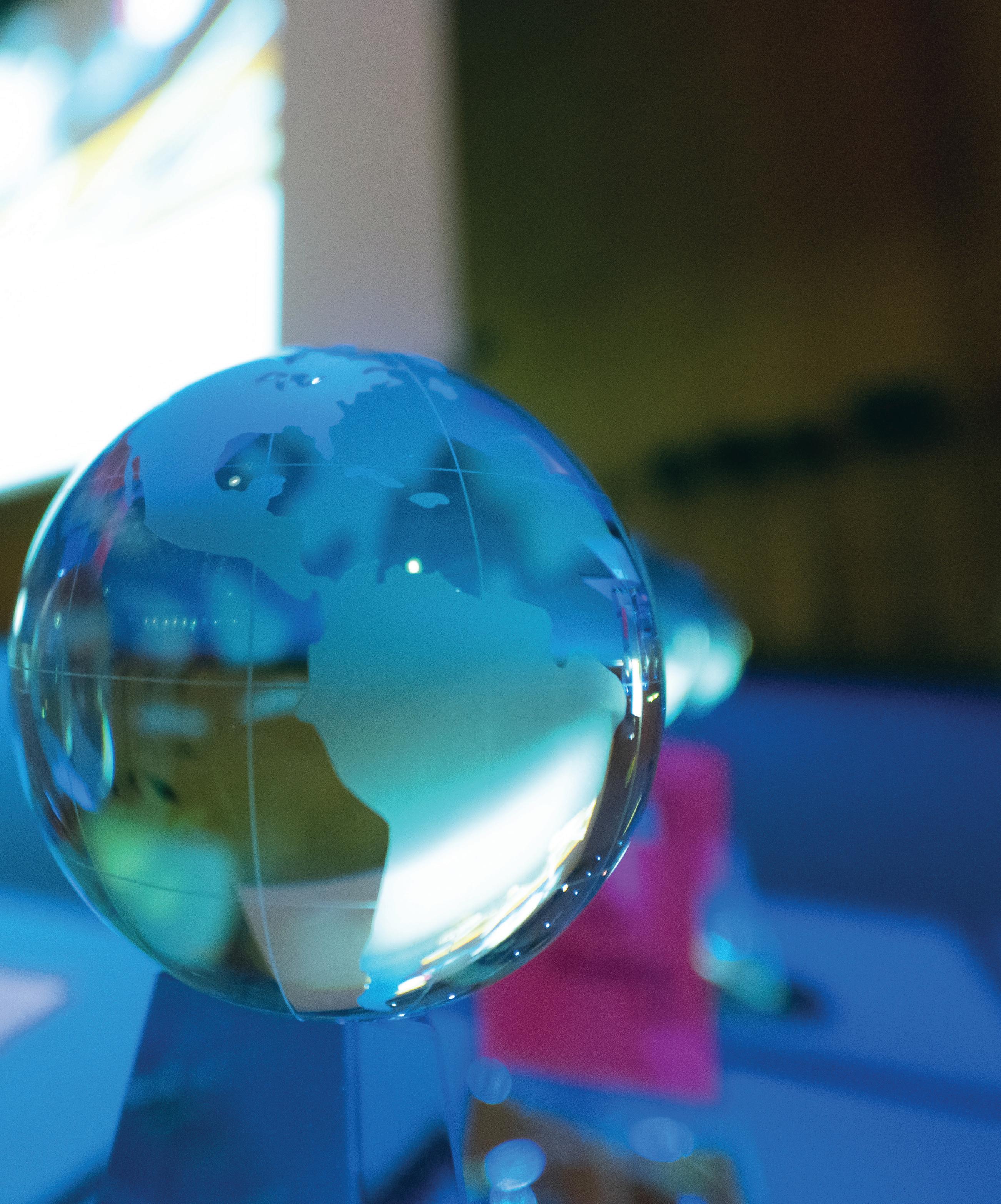
World Sleep Day Around the Globe Sleep Is Essential for Health The Four Stages of Sleep healthiersleepmag.com Volume 4, Issue 1 | Global Sleep Health Issue
Healthier Sleep
A publication of World Sleep Society
Your Trusted Source for Improving Sleep
Publisher
World Sleep Society
Editor
Karen Kilpatrick
Issue Reviewers
Melissa C. Lipford, MD
Maya Ramagopal, MD
Robert J. Thomas, MD
Sales Manager
healthiersleep@worldsleepsociety.org
Designer Brook Lanz
Contributing Writers
Ivy Chen, PhD
Arup Haldar, MBBS, DCH, MD
Mike Mutschelknaus, PhD
Ariel Neikrug, PhD
Joshua Roland, MD, FAASM
Jessica Thomas, MPH
For advertising or editorial contact information, email healthiersleep@worldsleepsociety.org or visit healthiersleepmag.com for current rates.
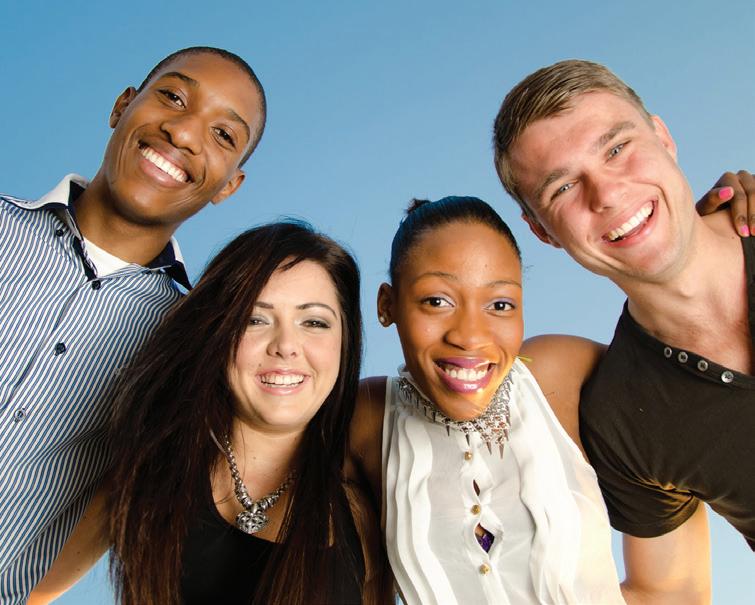
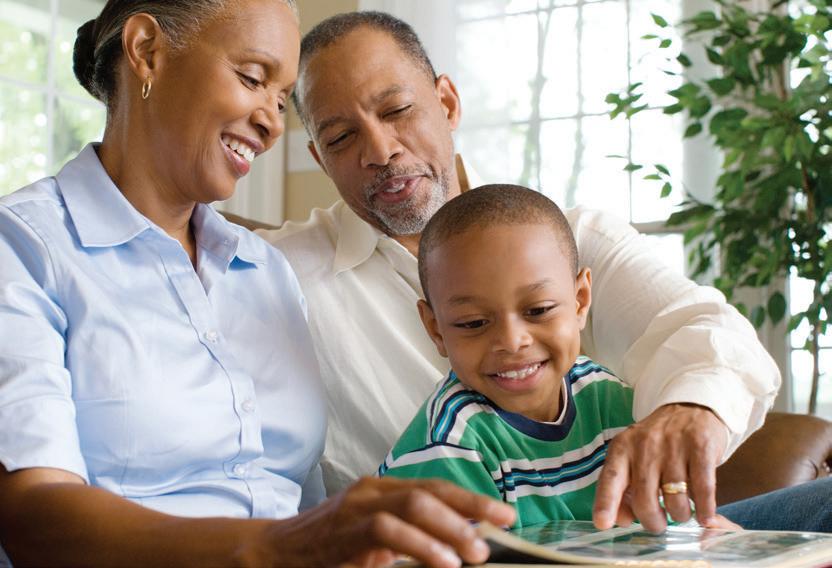
Healthier Sleep is published up to five times per year by World Sleep Society, 3270 19th Street NW, Suite 109, Rochester, MN 55901 and distributed to sleep medicine and research professionals as well as the public. No part of this publication may be reprinted or reproduced without written permission.
Healthier Sleep does not necessarily endorse the claims or content of advertising or editorial materials. All advertisements and editorial material included represents the opinions of the respective authors.
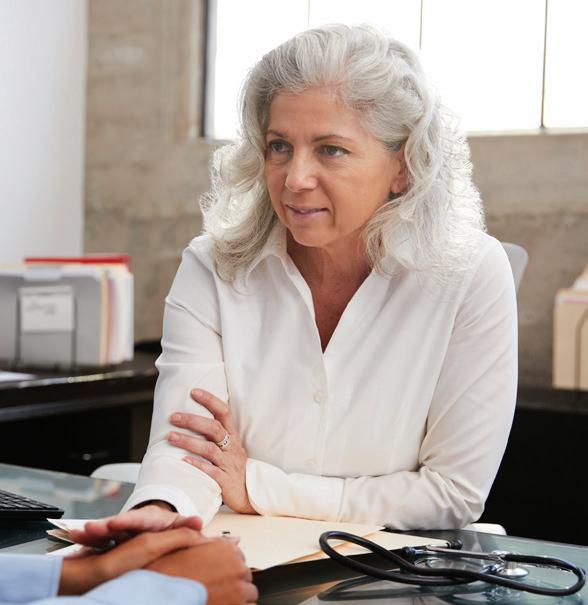
World Sleep Society/Healthier Sleep Magazine does not provide or offer medical advice. All content within the magazine, such as text, graphics, information obtained from sleep experts, and other material, is for informational purposes only. The content is not intended to be a substitute for medical diagnosis, advice or treatment. Relying on information provided by World Sleep Society and/or any of its employees, experts within the material, or other writers is solely at your own risk.
©2023 World Sleep Society. All rights reserved.
ABOUT
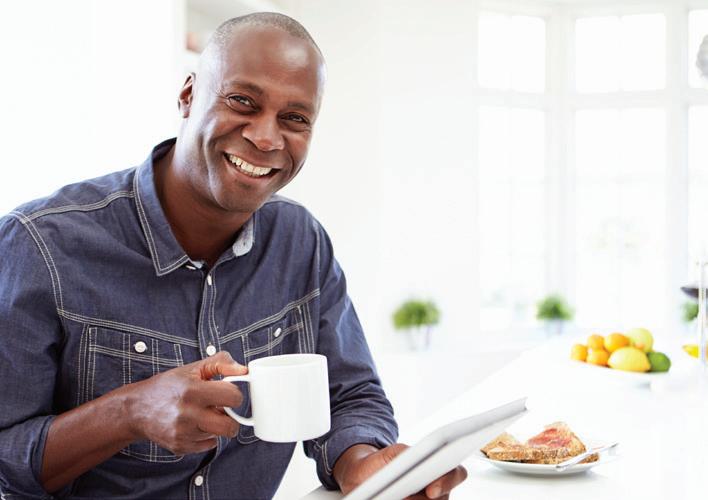
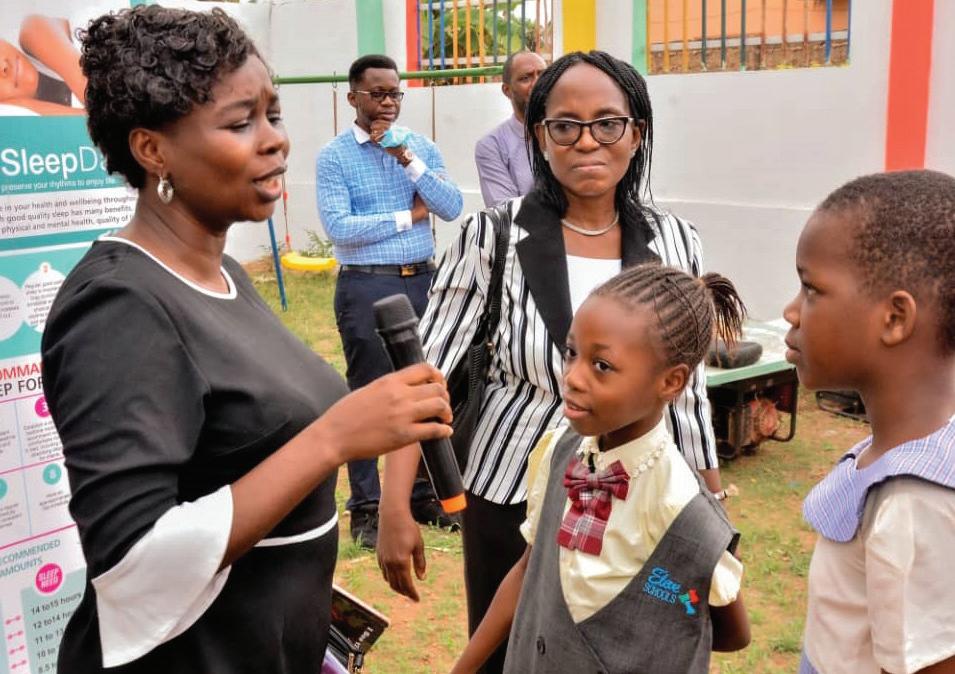
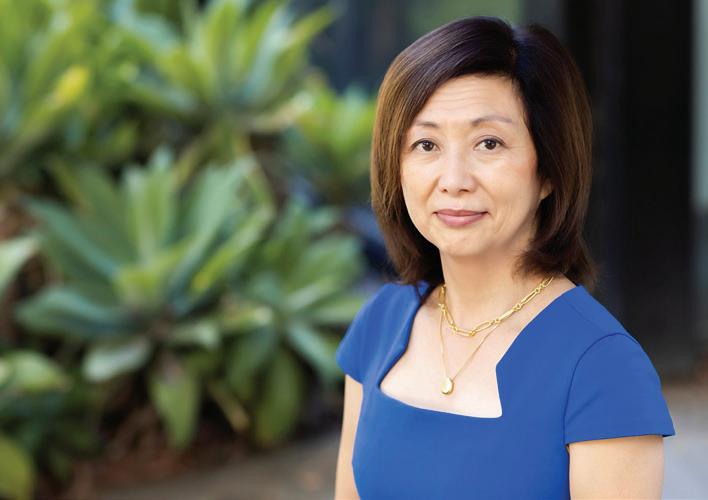
3 | healthiersleepmag.com CONTENTS Volume 4, Issue 1 | Global Sleep Health Issue 7 RU-SATED Questionnaire 15 16 Years of World Sleep Day 22 Promotion of Sleep Around the Globe 26 Is Climate Change Hurting Our Sleep? 28 Daylight Saving Time 31 World Sleep Academy Students Raise Awareness in Their Communities 36 The AHA Life’s Essential 8 | 4 | Sleep Is Essential for Health |8 | World Sleep Day Around the World | 16 | The Four Stages of Sleep In Every Issue Page 30 Your latest buzzword is "orthosomnia" The BuZZZ About Sleep Bedtime Reads Page 19 Hello Sleep Right Now in Sleep Science Page 25 Exposure to Natural Daylight Could Help You Fall Asleep Earlier Clinician as Advocate Page 20 Five Questions with Dr. Anne Marie Morse Ask the Sleep Experts Page 33 Your questions answered by sleep professionals On the Cover World Sleep Day Distinguished Activities Award presented during the Opening Ceremony at World Sleep 2022 in Rome, Italy. Photo credit: Red Rebel Agency Harmony Biosciences through an unrestricted educational grant has supported the ‘Clinician as Advocate’ article.
Sleep Is Essential for Health
By Jessica Thomas, MPH
On an intuitive level, we all know that good sleep is vital for our health. However, if we scratch the surface of this understanding a little bit, problems can start to emerge. Do we know what good sleep truly is? Many people think it can be defined by the number of hours we sleep or whether we have problems like sleep apnea.
The truth, though, is far more complex. Good sleep has more to do with the quality of our sleep rather than the number of hours that we sleep. And just because you don’t have a sleep disorder or other significant problem, that doesn’t mean you get good sleep.
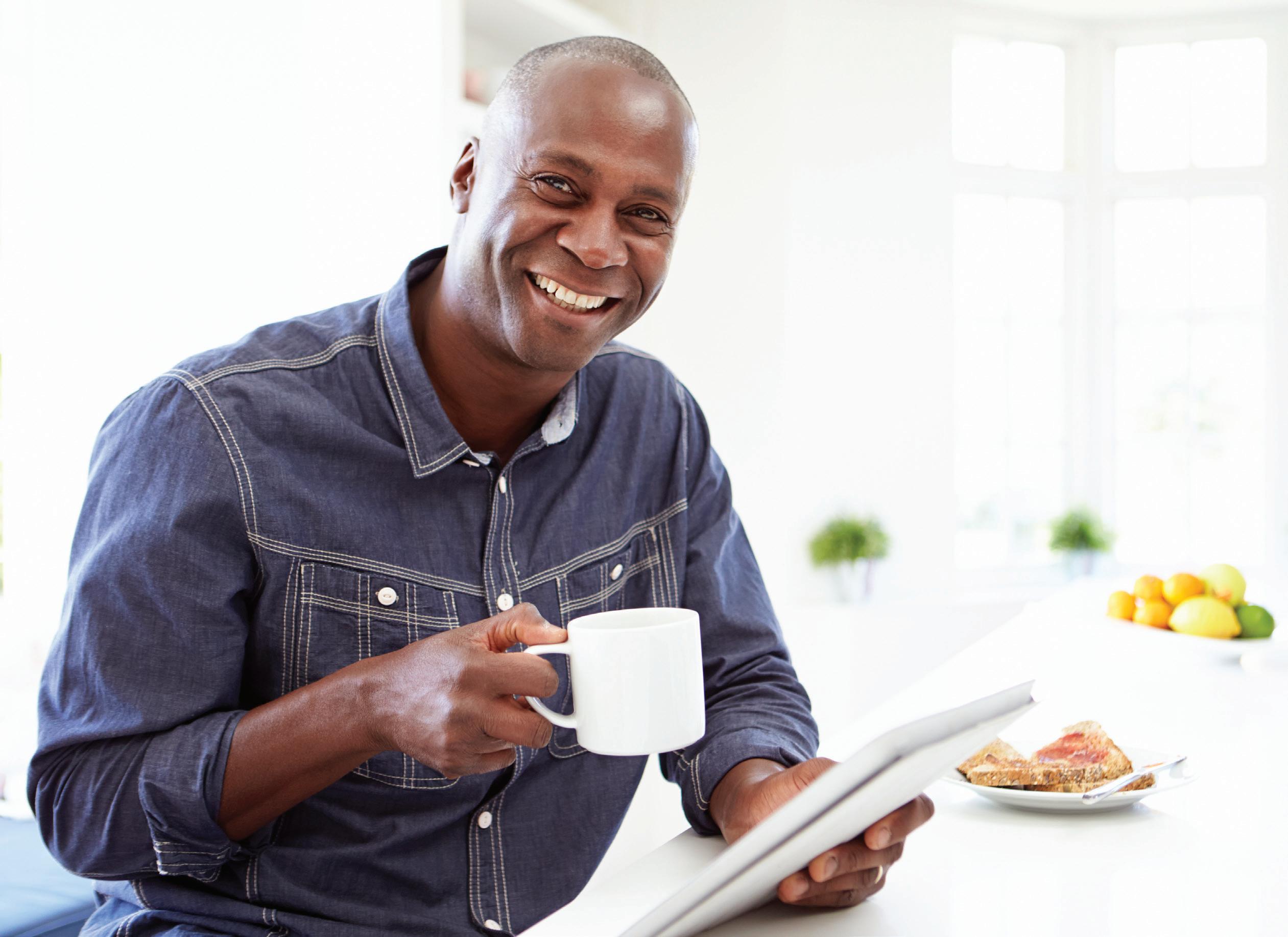
4 | Volume 4, Issue 1 | Global Sleep Health Issue
Defining Good Sleep Health
There are many ways to define what good sleep health is, but there is no consensus about the right or wrong way to go about this. As a result, it remains an area of active debate in the scientific and medical community.
At its simplest, good sleep health leaves you feeling energetic and able to take on your daily tasks. On the other hand, a lack of good sleep health may leave you feeling exhausted, dragging, and struggling to function. Completing even simple tasks can be arduous. This lack of good sleep health can affect both your physical and mental health.
The Link Between Poor Sleep Health and Poor Overall Health
Not surprisingly, if good sleep health can be linked to good health outcomes, poor sleep health can also be linked to poorer overall health and health outcomes for impacted people.
The United States’ National Institutes of Health (NIH) has conducted extensive research into the negative impacts of poor sleep on health and has found myriad consequences. Some of these effects are logical and expected, and some are less well-known (although research continues into these less well-known risks).
Perhaps the most well-known links are between poor sleep patterns and poor sleep health, and cardiovascular health. Poor sleep can lead to high blood pressure, which is also linked to heart disease and an elevated risk of stroke.
Research has also shown that poor sleep health causes late-night eating and increased caloric consumption, which can increase the risk of a person developing obesity. Obesity is a standalone problem. However, it’s also associated with an elevated risk for other diseases, such as type 2 diabetes, which can negatively impact a person’s quality of life, as well as their life expectancy.
Poor sleep health not only impacts a person’s physical health, but it also affects their mental health. For example, insomnia can skyrocket a person’s risk of depression almost ten times. Many people who are dealing with poor sleep also highlight how this has led to an uptick in their anxiety. However, it is important to note that the relationship between sleep and mental health is complex. Existing mental health problems can also drive sleep issues. There is an element of circularity here.
Assessing Our Sleep
In a seminal article published in 2014, Dr. Daniel Buysse highlighted traditional weaknesses in the sleep study field. As Buysse noted, sleep medicine has tended to focus on problems that can be identified and treated. Unfortunately, this approach overlooks many aspects of sleep and minimizes the link between sleep and health.
Buysse notes that one of the most important things that can be done is transforming the language we use to talk about sleep. Instead of focusing on the terminology of sleep problems, such as sleep apnea and narcolepsy, it’s critical that we move towards discussing sleep health. Assessing sleep health requires input from the person who is trying to sleep. One way to do this is with the RU-SATED questionnaire (see page 7). RU-SATED attempts to give people insight into their sleep health with six simple and straightforward questions, only one of which is focused on how much time a person sleeps. The questionnaire also assesses regularity of sleep times, satisfaction with sleep, alertness during the day, timing of sleep, and efficiency of falling asleep. A higher score out of 12 indicates that a person has better or good sleep health. On the other hand, a score near zero should raise alarms about sleep and the person’s health.
5 | healthiersleepmag.com
Sleep continued on page 6 >
Sleep continued from page 5
Moving Forward
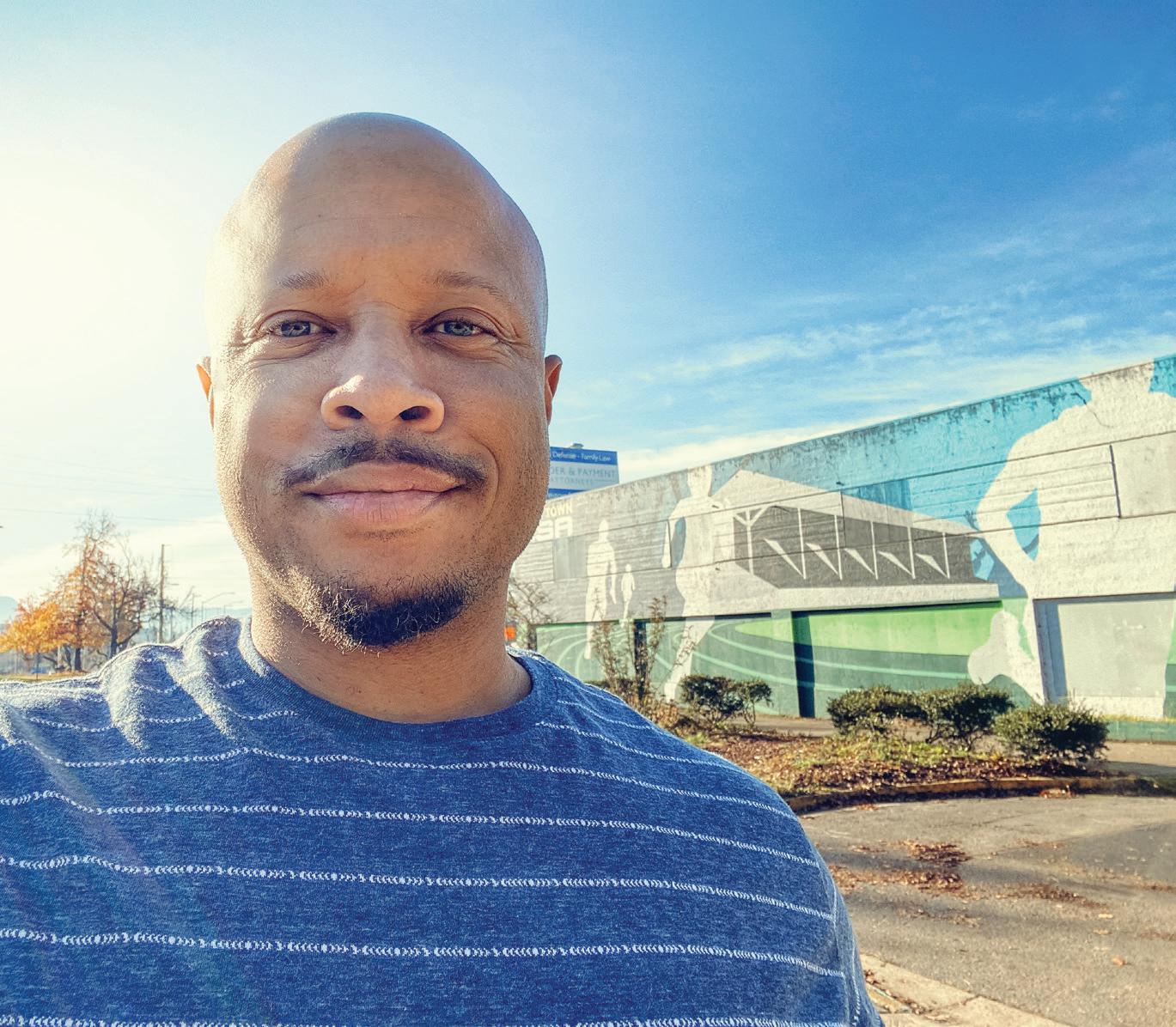
Throughout the world, many people are plagued by poor sleep, ranging from sleep deprivation (not getting enough hours of sleep each night) to getting poor quality and disrupted sleep that negatively impacts their day-to-day functioning. Part of addressing poor sleep is transitioning the conversation both in the general public and in the medical community from poor sleep and the number of hours slept each night to good sleep health and the quality of sleep.
Once this transition happens, it’s crucial for both sleepers and the scientific community that studies them to understand that there is a fundamental link between good sleep health and good overall health. Without good sleep health, people are at risk of developing a wide range of physical and mental health problems.
World Sleep Day: Celebrating Awareness
In recent years, there has been a rise in global awareness that good sleep is essential to a person’s overall physical and mental health. To celebrate this awareness and continue building momentum, a wide range of stakeholders, including sleep researchers, medical doctors, and impacted patients, will join together to celebrate the 16th annual World Sleep Day on Friday, March 17, 2023.
The theme for World Sleep Day 2023 reflects what all of the research has shown us: Sleep is Essential for Health.
*Citations available on healthiersleepmag.com
6 | Volume 4, Issue 1 | Global Sleep Health Issue
Jessica Thomas is a public health professional, health & wellness writer, and entrepreneur. She enjoys learning about and educating others on healthy living and observing how technology is changing the healthcare space.
Know Narcolepsy is a registered trademark of Harmony Biosciences. Harmony Biosciences name and logo are registered trademarks. © 2022 Harmony Biosciences. All rights reserved. US-NAR-2200140/Sep 2022 Find Real Personal Stories at KnowNarcolepsy.com Hear Their Stories Now Website is intended for US residents only.
RU-SATED Questionnaire
Quality sleep is associated with overall health and wellbeing. The RU-SATED inventory uses scientific factors developed by Dr. Dan Buysse, Professor of Psychiatry and Clinical and Translational Science, University of Pittsburgh. Answer the questions below to evaluate your own sleep. If the results concern you, contact your primary care physician.
Do you go to bed and get out of bed at about the same times (within one hour) every day?
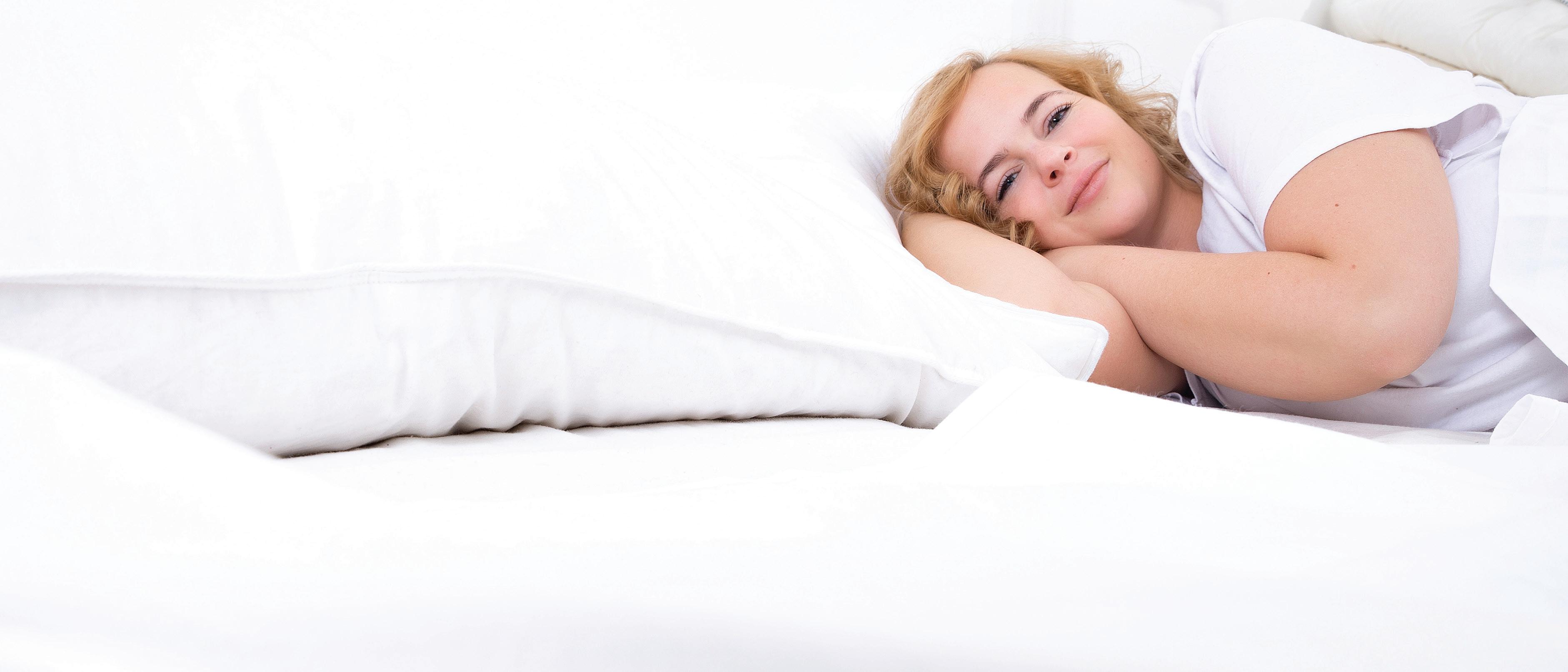
Do you spend less than 30 minutes awake at night? This includes the time it takes to fall asleep plus awakenings during sleep.
you sleep between 7 and 9 hours per day?
Total for all items ranges from 0-12.
0 = Poor Sleep Health
12 = Good Sleep Health
7 | healthiersleepmag.com Rarely | Never (0) Sometimes (1) Usually | Always (2) Regularity
0 1 2 Satisfaction Are
0 1 2 Alertness Do you
day
0 1 2 Timing Are you asleep (or
bed) between 2:00am and 4:00am? 0 1 2 Efficiency
you usually satisfied with your sleep?
stay awake all
without dozing?
in
0 1 2 Duration
0 1 2
Do
+ + © 2013 University of Pittsburgh. All rights reserved. Used with permission. For more information see Buysse, D.J. (2014). Sleep health: Can we define it? Does it matter? Sleep,37(1), 9-17. Available here: http://www.ncbi.nlm.nih.gov/pmc/articles/PMC3902880/
rld Sleep Day
Hosted by World Sleep Society
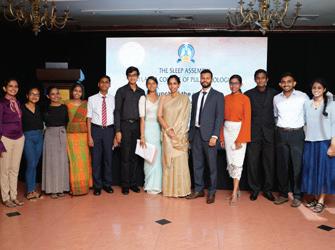

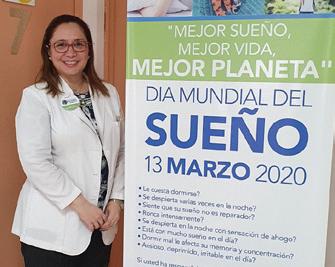
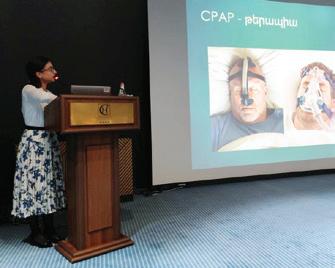
Around the World
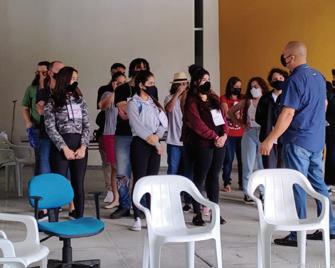
World Sleep Day is an annual celebration that brings together sleep medicine specialists and the public throughout the world to highlight the importance of sleep. Since the first World Sleep Day in 2008, thousands of events and activities have taken place around the globe. Dedicated sleep professionals have committed themselves to raising awareness of sleep and all it has to offer. Read on to learn more about World Sleep Day from recent award winners in their own words.
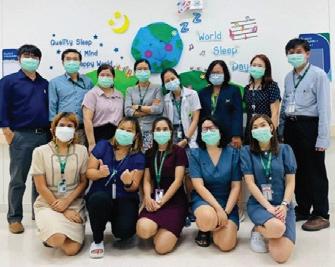
8 | Volume 4, Issue 1 | Global Sleep Health Issue
Nigeria
6 Years of Participation
Morenikeji Komolafe, MBBS(Ib), FWACP, FWSO | Obafemi Awolowo University, Ile-Ife, Nigeria
Our team has been involved in media (television, radio, newspapers) and school campaign activities as well as education of health workers. Our advocacy efforts target hospital management and the government to provide more facilities for sleep disorders.
Our goals for World Sleep Day are to raise awareness of sleep disorders among school children, teachers, and members of the public; to educate healthcare workers on the presentation and management of sleep disorders; to educate the healthcare workers and public on the adverse effects of sleep deprivation; and to encourage institutions to implement policies in terms of
better work schedules to reduce the adverse effects of sleep deprivation.
The awareness activities in the schools have been the most meaningful. The school children have a lot of questions and they are also agents of change as they carry the message home to their grandparents, parents, family members. World Sleep Day is an avenue to promote the field of sleep medicine and encourage more doctors to specialize in the discipline.
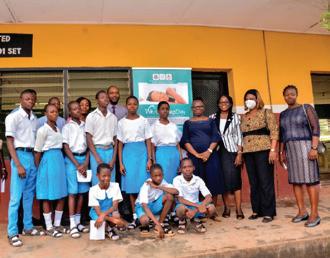
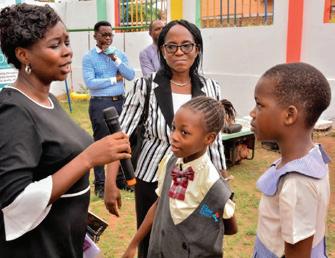
15 Years continued on page 10 >
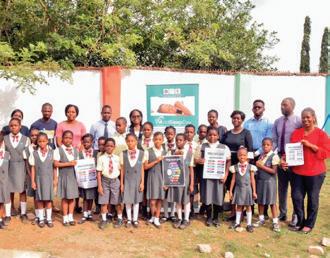
9 | healthiersleepmag.com
Morocco
2 Years of Participation
Amal Satté, MD | Moroccan Society of Sleep and Wakefulness
In 2022, as sleep disorders became a real issue because of the epidemic and the lockdown, the Moroccan Society of Sleep and Alertness (Société Marocaine du Sommeil et de la Vigilance [SMSV]) decided to organize activities to raise awareness of the importance of sleep. We contacted the most important TV channels in Morocco who featured members of the SMSV during the TV news and reported on sleep. We also organized activities in different associations and schools for adolescents.
Our main goals were to inform people that sleep issues shouldn’t be neglected and that there are sleep centers that manage these issues. Many patients came to the different sleep centers because they figured out that they had symptoms they heard about on the TV reports we did.
India
7 Years of Participation
Ravi Gupta, MD, PhD | Indian Society for Sleep Research
We have organized many events on different World Sleep Days including educating students about sleep health, educating teachers to identify children with suspected sleep disorders, educating physicians about identifying sleep disorders, and creating public awareness through newspapers and other media channels.
Activities organized on World Sleep Day allow us to directly communicate with people. This is an important day to remind people that sleep health is important for a healthy life.
India
5 Years of Participation
Nagarajan Ramakrishnan, MD | Nithra Institute of Sleep Sciences
Our goal every year is to reach out nationwide to create awareness on the importance of sleep for good health. We conduct a poster competition for children in various age groups based on the theme of the year. This helps to involve children at an early age to understand the importance of sleep.
Sleep health is often ignored. World Sleep Day is a great opportunity to remind healthcare professionals and the public of the importance and educate them on common sleep disorders. The activities help us to make people aware of the services that we provide. Dedicated sleep clinics in India are still far and few and many people are unaware of whom to approach for their sleep-related issues.
India
3 Years of Participation
Sudipta Chandra, MS (ENT), FRCS (Glasg) | Belle Vue Clinic & Hospital, Kolkata
In 2021, I tried to involve the sleep specialists of India, Bangladesh, Nepal, Sri Lanka, and Afghanistan as a single unit for World Sleep Day. Physical programs were organized in each of these countries and a live Facebook webinar was organized where everyone could participate.
World Sleep Day causes immense impact for the public; sleep physicians, technicians, and surgeons; and other medical faculty as it enables us to sleep naturally and peacefully in this ultrastressful world.
Our goals for World Sleep Day are to reach as many people and medical faculties as possible and shout out loud for sleep. As the lifestyles of people around the world become more stressful, various sleep disorders are becoming more common.
10 | Volume 4, Issue 1 | Global Sleep Health Issue
15 Years continued from page 9
Russia
2 Years of Participation
Lyudmila Korostovtseva, MD, PhD | Russian Society of Somnologists
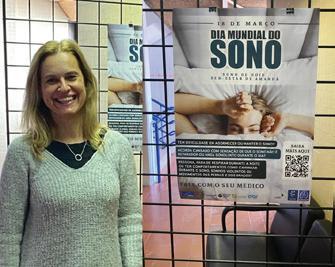
We have been organizing activities since 2014. The most meaningful projects were those for children, both preschool and school-aged. They included an interactive presentation of simple rules of healthy sleep for preschool children and interactive lectures for adolescents.
It is important to promote knowledge about sleep and its role for our lives, the ways to improve sleep, and to know about sleep disorders.
Thailand
2 Years of Participation
Pornprapa Chindamporn, MD | Sleep Society of Thailand
In 2021, we arranged the Good Sleep competition via the public’s own smart watches. A lot of people use smart watches now and they can participate in this with the already existing program. This activity can push good sleep hygiene for people.
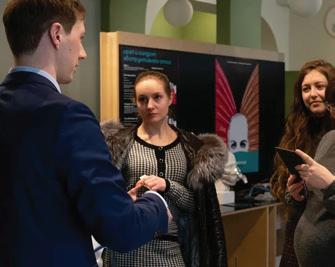
In 2022, the activity for the public was to compose a song for good sleep and promoting sleep hygiene. The Sleep Society of Thailand had collaboration from the Department of Health, Ministry of Public Health, Thailand. We arranged a press conference to promote sleep hygiene in childhood, middle-aged, and elderly groups and pushing good sleep policy to publication.

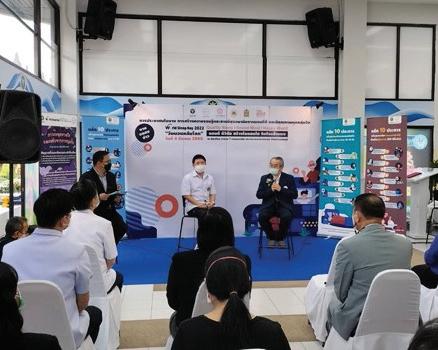
Sri Lanka
1 Year of Participation
Chandimani Undugodage, MBBS, MD, MRCP UK, FRCP (Lon) | Sri Lanka College of Pulmonologists
Our goals for World Sleep Day were to create awareness and knowledge among the general public on sleep and obstructive sleep apnea and to educate doctors on identifying sleep disorders. We made a sleep webpage (www.sleepbetter.lk) and held the launch of the site on World Sleep Day with over 100 participants. We also had a press conference, art competition, and academic program for doctors.
Armenia
13 Years of Participation
Samson Khachatryan, MD, PhD | Armenian Sleep Disorders Association, Department of Neurology and Neurosurgery, Armenian National Institute of Health
Right from the very start of World Sleep Day in 2008, I was deeply involved and organized various events with the participation of local and international speakers, doctors, and patients. Our most successful projects have been seminars on specific topics for specialists, presentation of local prevalence study results at a press conference, and high-impact TV show appearances.

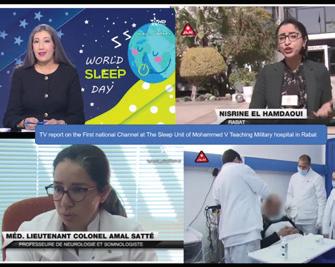
World Sleep Day is a great occasion to raise awareness among the general population and give attention to the work we have done locally. The population in Armenia now is more aware overall. People frequently find a sleep doctor through the internet and medical specialists are now more likely to refer their patients for sleep consultation and study.
15 Years continued on page 12
11 | healthiersleepmag.com
>
15 Years continued from page 11
Portugal
8 Years of Participation
Maria Helena Estêvão, MD | Portuguese Sleep Association
We always have great involvement with children’s activities. One of the most successful projects was a drawing contest that was partnered with the Center for Neuroscience and Cell Biology of the University of Coimbra, and was directed to all Portuguese children and adolescents.
World Sleep Day is very important to increase health literacy on sleep hygiene and disorders. A large population is reached including healthcare professionals and the public. Children are a very important group for taking home the message to their family.
Portugal
4 Years of Participation
Teresa Rebelo-Pinto MsC | Sleep & Psychology Clinic
World Sleep Day gives us the chance to build up impactful projects, bringing together different groups from the community and inviting them to look at sleep from a healthier perspective. It’s an opportunity to educate new researchers and clinicians that become interested in the sleep field. As they prepare educational toolkits and develop sessions for the community, they go deeper on this topic and increase their knowledge and professional skills.
All of our World Sleep Day projects have been very successful, but our advertising campaign in 2022 of “Sleep is not a waste of time!” was particularly important. Several media platforms shared our content. We focused on how untreated sleeping problems can lead to an increased risk of driving accidents, mental health issues, and poor performance at work.
World Sleep Day is an opportunity to have a lot of people with the same purpose: promote healthier sleep across age groups, cultures, and countries. In many cases, sleep is not part of the curriculum and there is still a considerable lack of knowledge about this field. This gap needs to be addressed and World Sleep Day is a great way to do that.
Many people ask for professional help after these campaigns because they became curious about sleep. Sometimes, they had no idea they had a serious sleep disorder (like narcolepsy or sleep apnea) and this would have stayed a silent issue without this type of awareness initiative.
We have also been developing a new methodology to track sleep problems: the Sleep Check-up. It is designed in a way that companies can offer their employees a specialized Sleep Check-up to identify sleep disorders in a very early stage and help people define which kind of professional help they need.
Estonia
2 Years of Participation
Elina Kivinukk, MSc | Estonian Academy of Music and Theatre
We have focused more on sleep and wellness for young people, especially on combining good sleep with productivity and creativity. We have tried to organize a week to encourage small changes in daily routines.
We organized Instagram Live events every evening at 11:00pm to encourage participants to get to sleep earlier and at a more regular time. In the first year, students of the drama school read sleeptime stories via Instagram Live. In the second year, we invited music students to sing sleep songs, which were broadcasted via Instagram Live.
It is important to keep the sense of community knowing that there are numerous specialists around the world who value the importance of sleep and mental health.
12 | Volume 4, Issue 1 | Global Sleep Health Issue
Spain
8 Years of Participation
Teresa Canet, PhD | Spanish Sleep Society

One year, I contacted a large shopping center present in all major cities, El Corte Inglés, to give a conference there on World Sleep Day. The events were held in 13 centers in different regions throughout the country on the same day with great attendance. The public was able to have direct information from sleep specialists and ask questions.
Another year, we collaborated with a school on a week-long program dedicated to the importance of sleep. The students prepared the content of the classes themselves. The school invited psychologists, nutritionists, soccer players, and sleep doctors to assess its contents and talk about sleep. The students prepared a list of practices for a good night's sleep and distributed it in hair salons, bakeries, and other stores in the neighborhood. They gave conferences to the parents and developed theaters about good sleep hygiene.
World Sleep Day promotes the importance of sleep in health, both individually and collectively, and it is an opportunity to reflect on the different public bodies such as schools, town halls, and government. Because of World Sleep Day, the population knows more about sleep problems and knows there are doctors who can treat them.
Guatemala
5 Years of Participation
Fernando Ceballos, MD | Gautemalan Association of Sleep Medicine
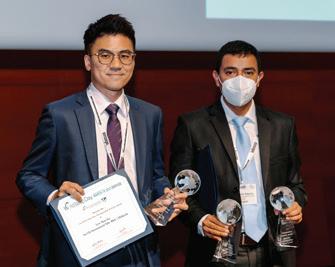
We devoted time to transmitting useful and valuable scientific concepts in simple language. We translated the commandments of sleep into Mayan languages to share useful knowledge with the population.
El Salvador
10 Years of Participation
Elena Majano, MD | Bernes Medical Sleep and Neurological Private Center
March is the most important month of the year. World Sleep Day is the perfect way to put El Salvador on the sleep map. Our goals are to have access for the general public, both adults and children, and bring information and knowledge about the importance of having good sleep every night.
World Sleep Day is a "staircase" to reach other colleagues and the general public and talk about how important it is have good sleep. World Sleep Day is expected every year and is very well covered. After 10 years in a row, it is a tradition in El Salvador.
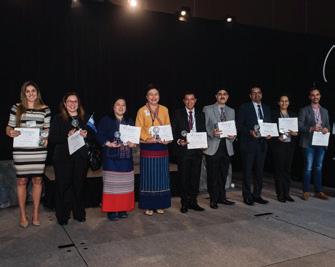
Mexico
8 Years of Participation
Montserrat Reséndiz-García, MSc | Instituto Nacional de Ciencias Médicas y Nutrición
Salvador Zubirán
World Sleep Day is important because it is an opportunity to spread the importance of sleep, reach healthcare personnel who do not know the area of sleep, and fulfill our social responsibility. The most successful projects are those where it has been possible to reach the general public, who do not know about the importance of sleep, especially in populations with little access to sleep care information. People who attend the events are interested in reviewing their sleep, making changes, and sharing the information with others.
13 | healthiersleepmag.com
15 Years continued on page 14 >
Mexico
8 Years of Participation
Matilde Valencia-Flores, PhD | Sleep Disorders Clinic, UNAM and INCMNSZ
World Sleep Day has been important for the clinic staff. Everyone participates and contributes with ideas, videos, songs, and lectures. Patients have not only reflected on their sleep problems for which they attend the clinic, but they have also shared their learning and reflections with friends and family.
Colombia
10 Years of Participation
Leslie Katherine Vargas Ramírez, MD | Instituto Neumológico del Oriente
The activities carried out during the pandemic have been especially significant since we had to devise them through virtual channels that could reach different audiences. The 2021 activity was very successful because we used a local television space to educate the population in our region on sleep hygiene.
In 2022, we met with a pediatric pulmonologist specializing in respiratory sleep disorders and a psychologist specializing in insomnia. Through Facebook we addressed the sleep disorders that increased during the pandemic and explained recommendations for schoolchildren returning to face-to-face activities.
World Sleep Day is a date that brings together all of us who work in sleep medicine around the world. It is very exciting to think that so many people work one day together under one slogan. World Sleep Day has increased our excitement and interest in carrying out activities that promote the education of health personnel, patients, and the community in general. It is a day we look forward to year after year.
Peru
5 Years of Participation
David Lira, MD | Peruvian Instituto of Neuroscience
Our first activity in 2015 was very meaningful; we worked with children and we learned first-hand about sleep problems in students.
Every year there is a greater number of institutions involved in promoting the importance of sleep in health and the media shows greater openness.
Brazil
9 Years of Participation
Lenise Kim, PhD | Brazilian Sleep Society
Everything started in 2015 when Dr. Paula Araujo and I were graduate students at the Division of Sleep Medicine and Biology from the Universidade Federal de Sao Paulo (UNIFESP). We read about World Sleep Day events on World Sleep Society’s website and we wanted to organize activities in our own city. We contacted the Brazilian Sleep Society and told them about our enthusiasm and ideas. The Brazilian Sleep Society and Department of Psychobiology at UNIFESP joined efforts and started a collaboration.
In Brazil, we’ve planned activities during the whole week of World Sleep Day and called it “Sleep Week”, in which a specific sleep topic was addressed on each day, such as insomnia, sleep deprivation, and sleep apnea. The most meaningful project was the closing days, in which we had interactive (hands-on) activities in public spaces of the city. We had several sleep professionals and students talking to the general population about the importance of sleep and the consequences of sleep disorders.
We also had the opportunity to expand our activities to the whole country. The Sleep Week activities occurred in all five Brazilian sociodemographic regions, involving 25 cities and reaching approximately 15,000 people.
14 | Volume 4, Issue 1 | Global Sleep Health Issue
15 Years continued from page 13
Years of World Sleep Day
Each year, World Sleep Day is celebrated with a unique and focused theme. Participants around the world incorporate the theme into their activities and educational offerings. As we continue to raise awareness through the 2023 World Sleep Day theme, “Sleep is essential for health,” we look back on 16 years of success.
1 2 3 4 5 6 7 8
2008 Sleep well, live fully awake
2009 Drive alert, arrive safe
2010 Sleep well, stay healthy
2011 Sleep well, grow healthy
2012 Breathe easily, sleep well
2013 Good sleep, healthy aging
2014 Restful sleep, easy breathing, healthy body
2015 When sleep is sound, health and happiness abound
9
10 11 12 13 14 15
2016 Good sleep is a reachable dream
2017 Sleep soundly, nurture life
2018 Join the sleep world, preserve your rhythms to enjoy life
2019 Healthy sleep, healthy aging
2020 Better sleep, better life, better planet
2021 Regular sleep, healthy future
2022 Quality sleep, sound mind, happy world
2023 Sleep is essential for health 16
15 | healthiersleepmag.com
16
worldsleepday.org facebook.com/wasmf twitter.com/_WorldSleep
The Four Stages of Sleep
By Karen Kilpatrick
Each night as you drift off to sleep, your brain begins going through a series of sleep stages. These stages combine to form a sleep cycle, but it doesn’t end there. You go through several sleep cycles each night. What happens during those stages, and do we really need them all? We spoke with Dr. Kin Yuen, a sleep medicine specialist at the University of California San Francisco, to learn more.

You may have heard of rapid eye movement (REM), which takes up about 20-25% of each night, but that’s only one stage. There are three



other stages of non-REM sleep: stage one, when you feel drowsy and start falling asleep; stage two, often referred to as light sleep; and stage three, called deep sleep.



Each stage is important, but they aren’t set in stone. The sleep stages and cycle change throughout the night.
Let’s take a look at each of the four stages.



16 | Volume 4, Issue 1 | Global Sleep Health Issue
1 2 3 4
Stage 1: Falling Asleep
The first stage of sleep happens as you close your eyes and move from being awake to sleeping. Dr. Yuen said this stage usually only lasts a few minutes, but most people go through it several times each night. It makes up about 5-10% of total sleep time.
During this stage, both brain and body activity slow down, but it’s easy to wake up. This is also when “hypnic jerks” happen, those involuntary contractions of muscles that sometimes feel like you’re falling.
Stage 2: Light Sleep
As you move into stage two, your breathing and heart rate slow down. This stage is referred to as “light sleep,” but that doesn’t mean it’s not needed. “Light sleep has an important role,” said Dr. Yuen. “This stage is necessary for memory formation and consolidation.”
Dr. Yuen explained that stage two is characterized by the appearance of sleep spindles and K complexes on electroencephalogram, which have a lot to do with how we encode and store information that we learn during the day. This stage lasts between 10-25 minutes of each cycle, but it accounts for about half of the total sleep time.
Stage 3: Deep Sleep
The third stage of sleep is called “deep sleep” or “slow wave” sleep. In this stage, brainwaves slow down. Muscle tone, heart rate, and breathing rate all decrease. It’s hard to wake up from this stage and when you do, you’re likely to feel pretty groggy.
This stage helps to restore the body and boosts the immune system, creativity, and memory. About 15-20% of the night is spent in deep sleep. Dr. Yuen said this stage mostly takes place in the first part of the night.
Stage 4: REM Sleep
In REM sleep, brain activity picks back up, increasing to levels like when you’re awake. As the name suggests, your eyes move rapidly even though they are closed. Dreams can happen in any stage, but they are especially vivid in REM sleep.
While the breathing muscles and the eye muscles stay active, the rest of your body’s muscles enter a state called “atonia”, which is like a temporary paralysis. Your breathing and heart rate become slightly irregular. Dr. Yuen noted that our bodies do not have temperature regulation in REM sleep. “In REM, we take on our ambient temperature. If the room temperature is set to 68 degrees, you are going to cool down substantially. A lot of people wake up because they feel chilly,” Dr. Yuen said.
The REM sleep stage gets longer as the night goes on. The first sleep cycle of the night might only have a few minutes of REM, but by the end of the night, it’s likely to be closer to an hour.
Stages continued on page 18 >
17 | healthiersleepmag.com
Stages continued from page 17
Putting It All Together
Over the course of a night, most people will go through 4-6 sleep cycles. The first cycle of the night typically lasts about 70-100 minutes. The cycles tend to get longer throughout the night. Dr. Yuen said that stage three (deep sleep) is usually the longest stage in the beginning of the night. As the night goes on, REM sleep increases in length while deep sleep decreases.
Not only are all the stages needed, but they also work together to accomplish different tasks during the night. “We know that for the first two sleep cycles, we actually need alternating stage two, slow wave sleep, and REM sleep for most of our memories to be consolidated,” said Dr. Yuen. “Declarative memory is more likely to be consolidated in stage two, then other parts like procedural skills are more likely to be consolidated during REM sleep. We need the alternation of the stages.” This means if you don’t get two full cycles of sleep in a night, any learning from that day might not be cemented in your memory.
According to Dr. Yuen, the stages don’t always go in the same order. It’s possible, for example, to go from stage two (light sleep) directly into REM sleep, skipping stage three (deep sleep). “It’s more likely to happen in the latter part of the night, going from stage two to REM,” said Dr. Yuen. “You might not have any slow wave sleep left by then.”
Keep In Mind
There are a lot of factors that can influence your sleep cycles. Sleep stages and cycles change as we age; the sleep cycles for an infant are very different from those of an adult, for example. “If you’re sick with a cold, that might influence sleep stages,” said Dr. Yuen. “If you’re in an environment you’re not familiar with, these stages might shift.” Other factors include exercise, alcohol, prescription medications, jet lag, and shift working.
Our innate biological rhythms, or circadian rhythms, also influence the sleep cycles. As Dr. Yuen said, “If you’re a night owl and you have to get to a meeting at 8 in the morning, you’re not going to get all of these sleep stages.”
If you’re using a sleep-tracking device, it’s important to remember that while current technology tries to capture sleep stages, the device may be less accurate than inpatient sleep studies. Dr. Yuen mentioned that these devices tend to overestimate the times you wake up during the night.
Everyone is different and has unique sleep patterns that change from night to night. It’s normal to have a night or two when things feel a little off and you don’t feel refreshed, but if it seems like you’re consistently missing out on that important, restorative sleep, it’s a good idea to talk with your doctor
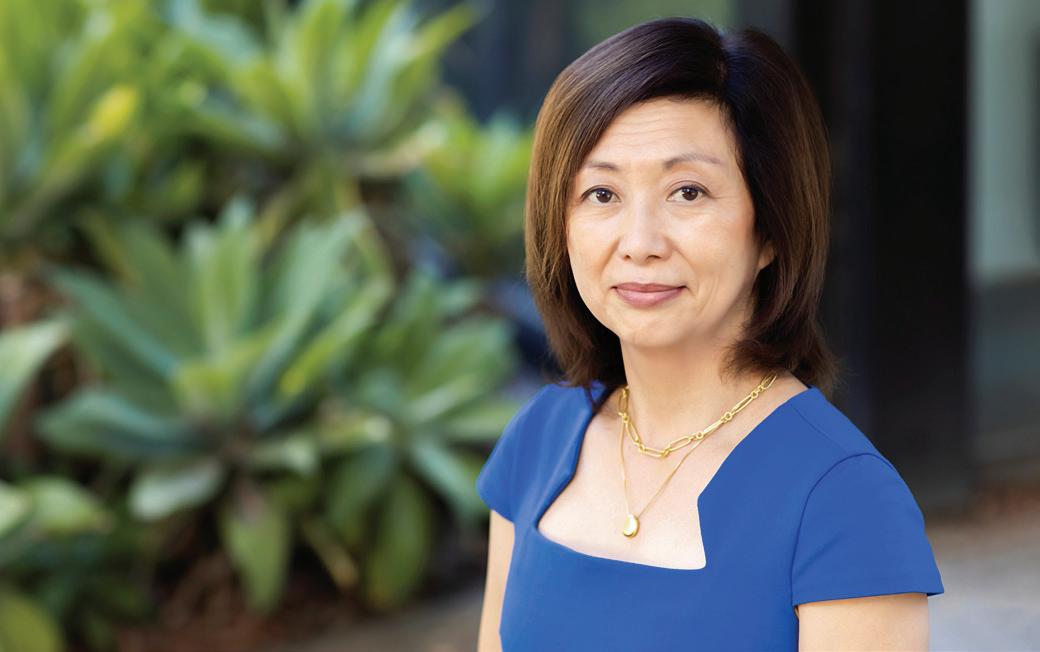
18 | Volume 4, Issue 1 | Global Sleep Health Issue
Dr. Kin Yuen is an assistant professor at the University of California San Francisco and an adjunct assistant professor at Stanford University. Her research interests include cardiac arrhythmia, medical devices, and health economic evaluations in sleep disorders.
Not only are all the stages needed, but they also work together to accomplish different tasks during the night.
Dr. Kin Yuen | University of California San Francisco
Bedtime Reads
Looking to learn even more? Each issue, we highlight a book about sleep.
Hello Sleep
by Jade Wu, PhD
For many people who have trouble sleeping, each night is an anxious odyssey where getting a good night’s sleep feels like a battle to win rather than a basic biological process. The problem is that too many people approach sleep as an issue of control rather than focusing on changing their relationship to sleep. The truth is that we all already know how to sleep – we don’t need a formula to fix that, or a collection of tips for how to optimize your sleep because perfection is neither necessary nor sufficient for sustainable sleep health.
Dr. Jade Wu, behavioral sleep medicine specialist and researcher, has helped hundreds of patients over the last ten years. Her debut book Hello Sleep: The Science and Art of Overcoming Insomnia Without Medications is a guide for those with insomnia to help them shift their relationship with sleep to make it enjoyable and natural again. Even those without insomnia will find explanations and recommendations to improve their own sleep habits.
From the author: I wanted to write an up-to-date, laser-focused book on insomnia that was not simply a “layman’s version” of sleep textbooks, but rather a fireside chat that treated my readers as intelligent, curious people capable of self-determination. I wanted to provide them with explanations that made sense and actually addressed their questions about insomnia—a collection of the scientifically sound but down-to-earth things I would say to my patients. So, I set out to write this book with the hope that people with insomnia will find within it the answers to their burning questions, and a practical plan to help them rekindle their love affair with sleep.
 Dr. Jade Wu
Dr. Jade Wu
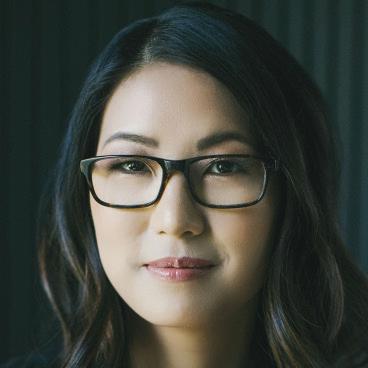
19 | healthiersleepmag.com
Clinician as Advocate
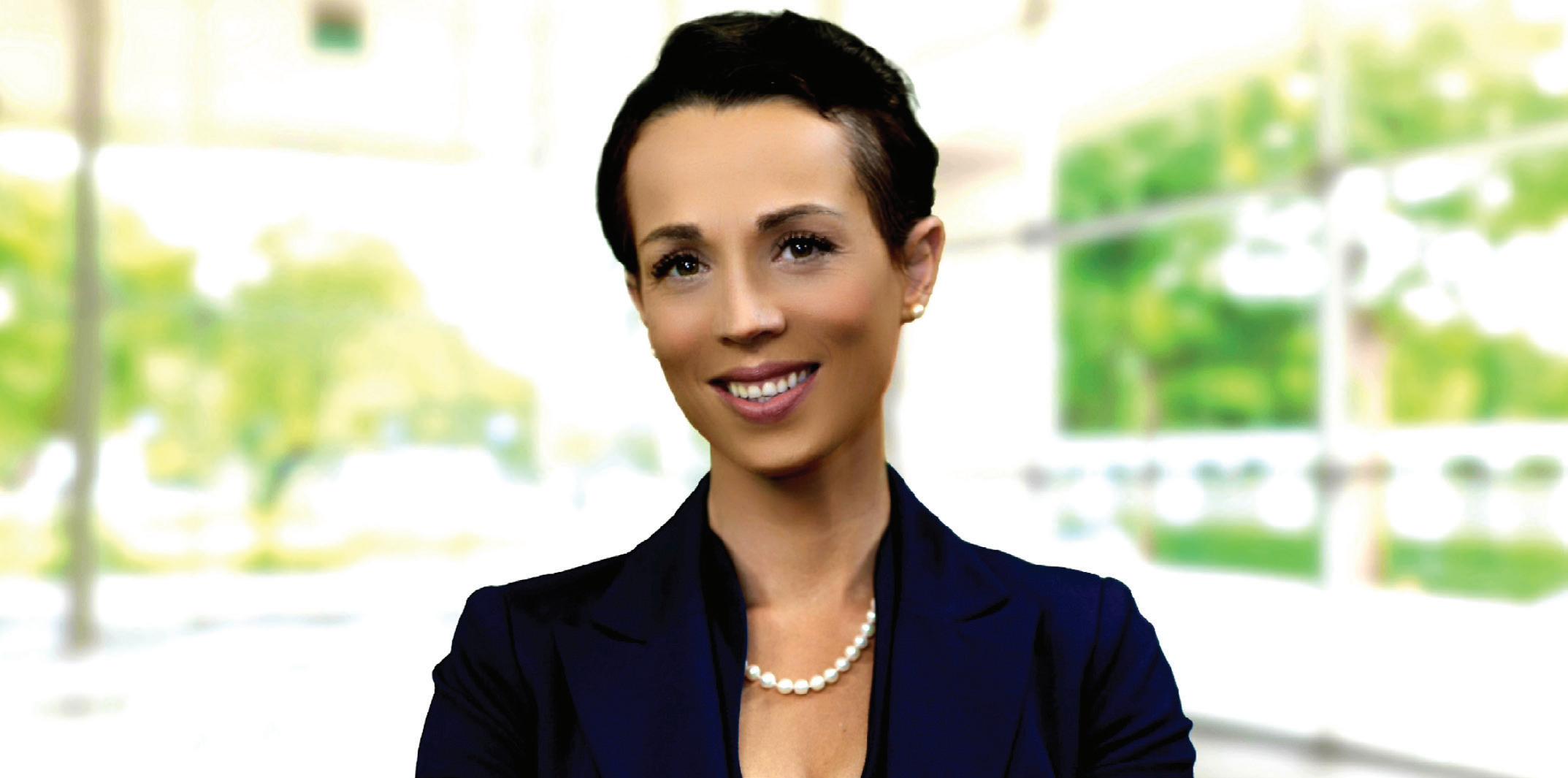
Five
Dr. Anne Marie Morse is the Director of Child Neurology and Pediatric Sleep Medicine at Geisinger Janet Weis Children’s Hospital. She is a board-certified neurologist specializing in child neurology and sleep medicine and works with both children and adults, with a focus on central disorders of hypersomnolence (CDH).
What led you to work in sleep medicine?
I really did not have sleep on my radar. During my child neurology training, I noticed that almost all of the neurology patients also had a sleep problem. My hypothesis at the time was not that it was a comorbidity but that it was a shared substrate. It seemed to me like there was an opportunity to use sleep as a tool for healing the full person.
I’ve always thought it’s astounding that we don’t ask questions about how people sleep, whether it’s a well individual or someone who has an illness. There is an opportunity to really look at sleep from the capacity of how you can use it as a tool in diagnosis, management, and prognosis.
What advocacy work do you do?
The role of advocacy is something that I’ve had as part of my vision since I was a resident. I try to participate in advocacy with every opportunity that comes. If there’s a request from a local newspaper or television station, I’m there. I participate through partnerships with different advocacy groups, either as an advisor or volunteer in some capacity; that extends to everything from the American Academy of Sleep Medicine to different specialty organizations.
I also have advocacy within my own community. I find it important to meet individuals where they’re at. I developed a program called “Wake Up and Learn” where we go into school districts and provide scheduled sleep screening and education. It has been an incredible tool for sleep health advocacy, and we’ve received a lot of really great feedback from students, families, and school staff.
20 | Volume 4, Issue 1 | Global Sleep Health Issue
Questions with Dr. Anne Marie Morse
Harmony Biosciences is the sponsor of this ‘Clinician as Advocate’ article.
I also advocate through social media. There are so many physicians who tend to scold patients for using the internet and social media as their means of information gathering. I strongly disagree; instead, we need to be part of where they’re looking for information and empower individuals to have an active role in their own education and wellness journey. Not only has it been an opportunity for me to advocate and educate others, but I have also been humbled by how much I’ve learned about the challenges and opportunities that exist that I never would have thought of previously.
How are you using social media to reach people?
I’m on several different platforms including LinkedIn, Twitter, Instagram, and TikTok. The main one I use is TikTok because I can make quick videos, edit them easily, and share them to other platforms. I find that the level of engagement on TikTok tends to be a lot higher than in some of these other areas. When people start responding, it greatly informs what’s going on.
As an example, I posted a video for middle school and high school students asking “are you getting enough sleep and if not, why not?” There were over 50,000 views and 700 responses, many of them saying they have lots of homework, extracurricular commitments, long bus rides. There are some innate things that we need to learn.

These are the conversations that are so exciting and informative. When you come into the public realm and get that engagement, it allows people to feel involved in the change they’re experiencing.
Why is advocacy important to you?
Advocacy is critically important because in medicine we have this false belief that as the clinicians, we are the ones who matter and the reality is we aren’t. We are the ones who are educated in the specific disease states, the risks and benefits, but our role is to be the guide on the side. We need to empower the person who is on that medical journey, whether it’s with wellness or a battle with chronic illness.
Advocacy allows us to get the patient voice out there. It allows patients to be behind the steering wheel in being allowed to drive things. It allows us the opportunity to learn from the mistakes we’ve made in healthcare.
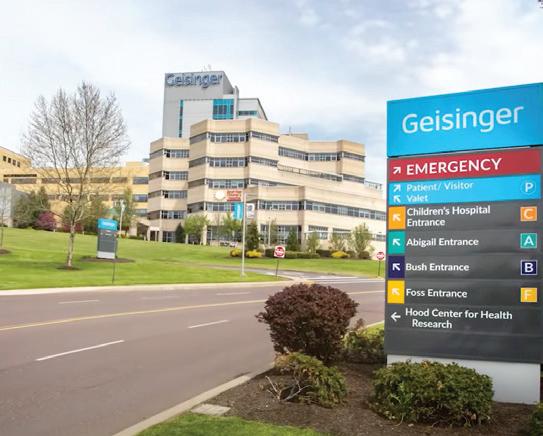
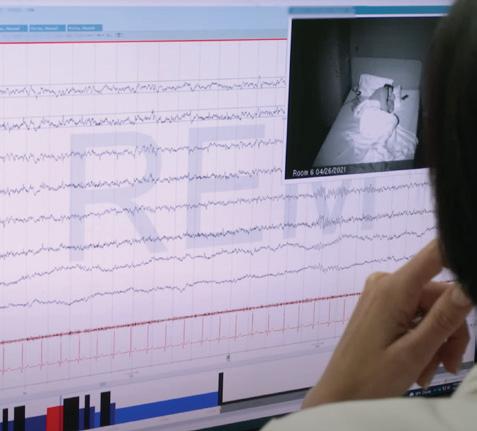
What are you excited about?
Everything! I am most excited about the different opportunities that I have been afforded to work with so many incredible people. I am constantly humbled by the emails, messages, and phone calls I get, whether it’s people saying “thank you, this has been helpful” or my patients saying their life has been changed.
I’m also excited about being a part of something bigger. I feel that this year is going to be a huge, transformative year. For me, having an increased opportunity to be on a larger stage and reach more people and be part of the bigger evolution on where sleep can go, that is super exciting. Being able to be part of elevating the patient voice, I’m so appreciative and humbled by that opportunity.
21 | healthiersleepmag.com
These are the conversations that are so exciting and informative. When you come into the public realm and get that engagement, it allows people to feel involved in the change they’re experiencing.
Promotion of Sleep Around the Globe
By Joshua Roland, MD, FAASM
22 | Volume 4, Issue 1 | Global Sleep Health Issue
Sleep is a crucial biological process. Humans need an average of 7-8 hours of sleep each night1 to operate at our best. However, studies suggest that up to 1/3rd of the population does not achieve this amount2. Lack of proper sleep is linked to many health conditions and can contribute to mood and cognitive issues. Poor sleep has been associated with high blood pressure (hypertension), elevated blood sugar (diabetes), and higher rates of depression.
People who do not get good sleep also have an increased risk of heart attack, stroke, and certain types of cancer3, and are more likely to get into a motor vehicle accident. A growing number of scientific studies continue to show how poor sleep can negatively impact various biological systems. With more appreciation of just how vital sleep is for health and wellness, promoting the importance of getting adequate sleep is paramount for a healthy population across the globe.
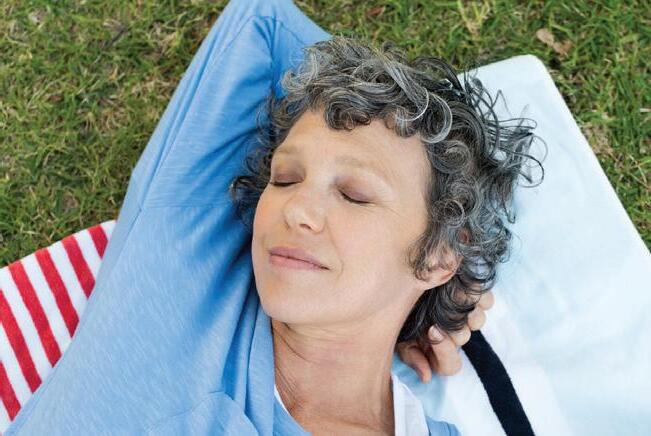
Differences Cultures, Different Views
The view of sleep can vary around the world, with different cultural and environmental conditions shaping how people sleep. For example, in many cultures, working hard is understandably highly valued. At times there can be such a strong focus on productivity that it takes priority over getting enough rest. In some cultures, it may be seen as a positive quality if someone is clearly sleep-deprived. This can be viewed as a sign of a strong work ethic. However, people who are sleepdeprived are likely to have lower productivity levels and are more prone to making errors4. We simply are not as sharp or efficient if we are not getting adequate healthy sleep.
Some cultures look favorably on napping and include it in their daily lives, while others may view it as a sign of laziness. In some regions, families sleep together in the same space while in other places they sleep apart. People in some parts of the world may be more at risk for sleep disorders such as sleep apnea, which can be a major detriment on sleep quality and health. There are also different levels of access to diagnostic and therapeutic options to treat sleep conditions.
While different populations across the globe may have different habits and views about sleep, no matter what part of the planet you live on, good sleep is integral to good health and well-being.
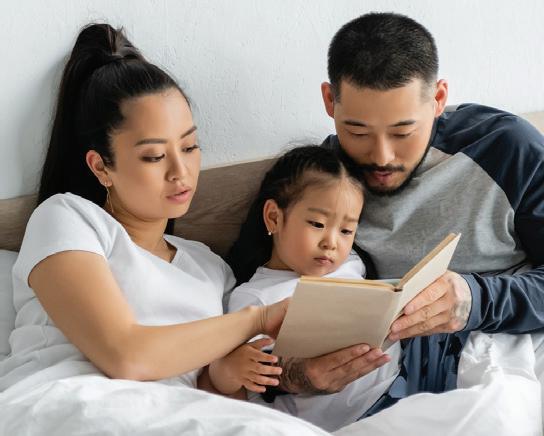

Trends Around the Globe
Increasingly, much of the world has been undergoing “globalization.” A greater percentage of the global population relies on artificial lighting to extend their wake time than ever before. Throughout the world, there is increased use of electronic devices at night. These increases in light exposure can contribute to the global health issue of inadequate sleep.
23 | healthiersleepmag.com
Promotion of Sleep continued on page 24 >
The world today may seem divisive at times, with our differences often highlighted. But we are all much more alike than we are different. The importance of sleep for health is shared around the planet. Unfortunately, the large portion of the population not obtaining adequate sleep is also a commonality shared across the globe.
In addition, we now operate in a more global workplace and connect with friends and family in different parts of the world. Our natural sleep cycles (or circadian rhythms) are further disrupted, worsening sleep quality and duration as we interact across different time zones.
Growing Attention
Thankfully, awareness of sleep’s role in health has been increasing. Numerous groups across the globe are working hard to change the view of sleep and highlight its importance. This is exemplified by organizations such as the World Sleep Society, which is dedicated to advancing sleep health across the globe. Events such as World Sleep Day aim to bring the world together in awareness of the importance of sleep. Other groups, such as the nonprofit organization Project Sleep, have been formed to promote patient advocacy and awareness of sleep disorders. Technology, while often cited for its negative impact on sleep, can allow for better access to information on healthy sleeping habits and potentially provide better access to means to diagnose and treat sleep disorders.
The world today may seem divisive at times, with our differences often highlighted. But we are all much more alike than we are different. The importance of sleep for health is shared around the planet. Unfortunately, the large portion of the population not obtaining adequate sleep is also a commonality shared across the globe.
There is still a long way to go toward spreading awareness of the importance of sleep to health. A vast portion of the global population is not getting enough rest. Sleep disorders such as sleep apnea are often going undiagnosed. More studies are needed to help us understand sleep issues in varying populations across the planet. Different habits and cultural attitudes surrounding sleep need to be considered when designing and implementing interventions to promote healthy sleep.
Sleep remains a key target area to improve health worldwide. Optimism and hope for better sleep are abundant due to increased public and medical awareness of sleep health thanks to a growing number of individuals and organizations who have dedicated their time and resources to promoting sleep across the globe.
*Citations available on healthiersleepmag.com
World Sleep Day is an annual public awareness day that celebrates healthy sleep. World Sleep Society members around the world organize local and regional activities that promote the year’s theme and raise awareness of sleep health.
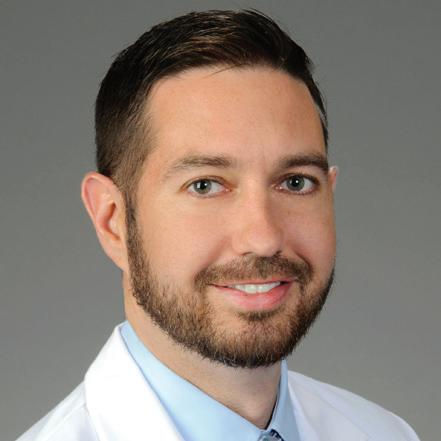
......................................................
Dr. Joshua Roland is a sleep medicine physician with the telehealth company Thirty Madison in Los Angeles, California. He has worked in sleep medicine for over five years.
worldsleepday.org facebook.com/wasmf twitter.com/_WorldSleep
16th Promotion of Sleep continued from page x
Dr. Joshua Roland
Right Now in Sleep Science
Researchers in the United States have discovered a new study that shows getting more exposure to natural daylight could help you fall asleep earlier, especially if you spend time outside during the morning hours. Researchers studied the sleep patterns of over 500 students at the University of Washington in Seattle throughout all four seasons of the year between the years of 2015 and 2018. They found that students went to sleep later in the evening and woke up later in the morning during the winter season, when daylight hours are limited.
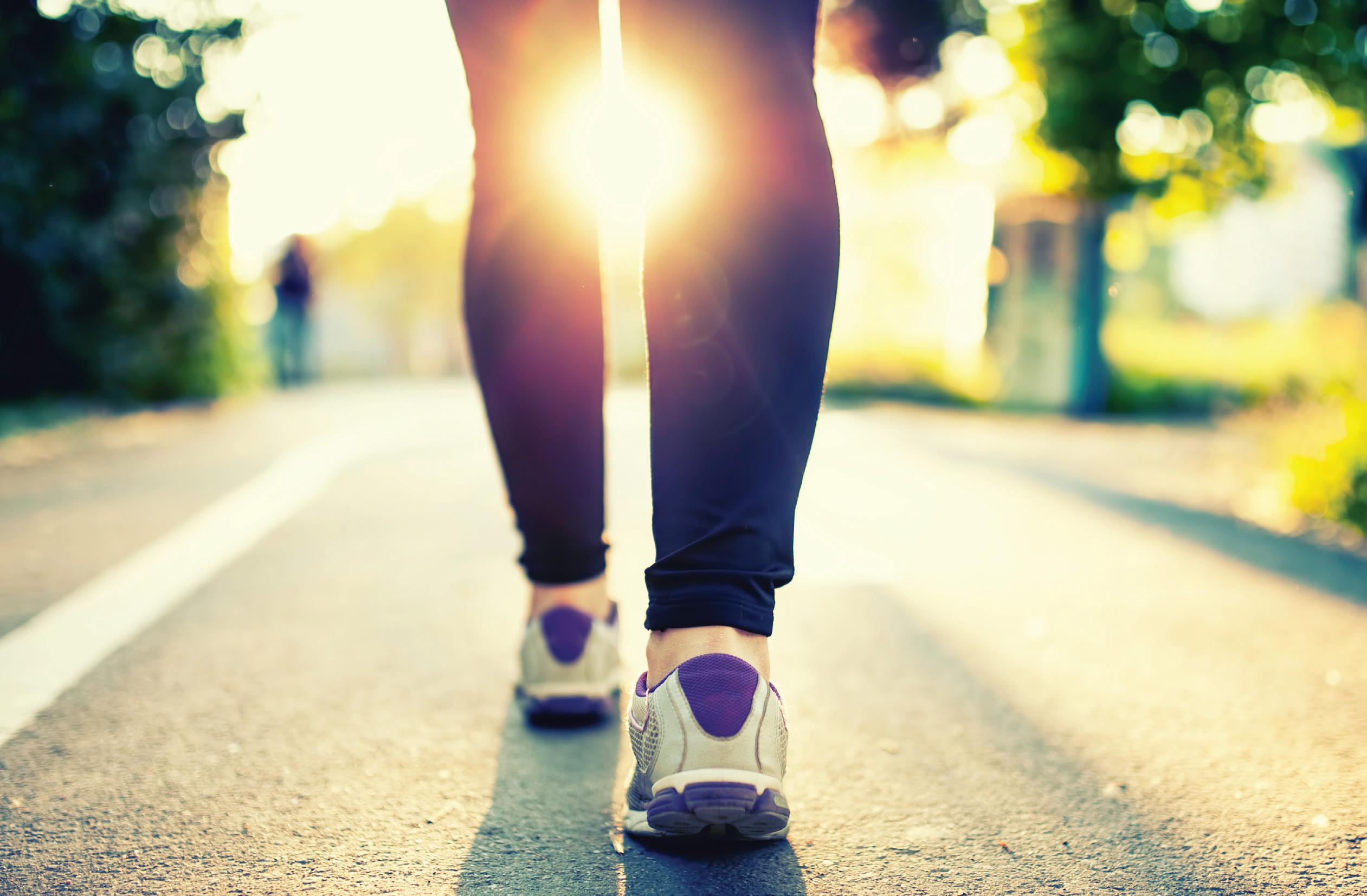
Researchers expected the findings to show that students went to bed later during the summer hours, when Seattle has daylight into the late evening hours. The data, however, showed the opposite.
In the winter, students went to sleep an average of 35 minutes later and woke up an average of 27 minutes later than the rest of the year.
It’s possible that the students’ circadian rhythms, or the body’s internal clock, are causing the difference. Exposure to outdoor light in the morning appears to advance the circadian rhythms, signaling the body to go to sleep earlier in the evening. Outdoor light, even on cloudy days, had more of an impact than artificial light.
25 | healthiersleepmag.com
Journal of Pineal Research. December 2022. doi:10.1111/jpi.12843
Is Climate Change Hurting Our Sleep?
 By Arup Haldar, MBBS, DCH, MD
By Arup Haldar, MBBS, DCH, MD
Sleep is one facet of our health that is impacted by climate change. Sleep is vital for restoring physical and mental health. Sleep deprivation speeds up the aging process and can lead to various cardiometabolic disorders. Not getting enough good sleep used to be seen as a lifestyle problem, but it is now considered as a distinct disease. The current terminology for sleep deprivation is “insufficient sleep syndrome” (ISS). While ISS can be deliberate and self-induced, environmental cues are also a risk factor.
Rising Temperatures
One of the ways the body prepares itself to fall asleep is by cooling the body. Before falling asleep, temperature at the body’s distal sites, like the hands and feet, increases slightly. This increase causes the core body temperature to drop. The body’s temperature remains low while asleep, then increases again before awakening.
When the environmental or room temperature is warmer than usual, it’s more difficult for the body to decrease its temperature for sleep onset and maintain the lower temperature during sleep. That's why it’s harder to fall and stay asleep in warmer temperatures. Because climate change is causing higher temperatures in many parts of the world, people may have a more difficult time getting good sleep.

In the United States, the average temperature has increased 0.8-1.0 ᵒC since 1895. The rise has been steeper since 1970. Rising temperatures have caused more heat-related events. Higher daytime temperatures are leading to persistently higher nighttime temperatures.
There is evidence that negative effects of higher temperatures are stronger in elderly and lower income populations. The most vulnerable people for climate-sensitive diseases are those least responsible for such a climate crisis.
Air Pollution
The climate crisis can reduce sleep in other ways, such as air pollution. Recent studies show that air pollution can lead to obstructive sleep apnea (OSA). In OSA, there is reduced or blocked airflow to the lungs during sleep. This leads to reduced oxygen saturation in blood. The brain wakes up repeatedly to choking episodes during sleep. OSA impairs sleep quality and daytime functioning and can lead to premature death.
Extreme Weather Events
The climate crisis is responsible for more cyclones and extreme weather events. Since the middle of the 20th century, the frequency of very severe cyclonic storms has increased significantly. These events have negative effects on acute and chronic sleep health due to loss of shelter, anxiety, and posttraumatic stress disorders.
Climate Refugees
Climate changes will lead to more climate refugees. A 2018 World Bank Group report estimated that the impacts of climate change in Sub-Saharan Africa, South Asia, and Latin America could lead to more than 140 million people leaving their homes before 2050. This has a tremendous effect on mental health. Such adverse mental health conditions will cause more sleep problems in the affected population. Sleep problems and mental health have a bidirectional relationship and perpetuate each other.
The five pillars of good health are good food, good water, good air, good sleep, and regular exercise. The first four components are directly affected by climate changes. Though much attention has been shown regarding food, water, and air safety, there has been little concern about sleep health. The right to a healthy sleep environment is still a concept in need of attention. Sleep problems are not yet included in lists of climate-sensitive diseases. Given sleep’s importance to maintain a healthy body and mind, it cannot be ignored
*Citations available on healthiersleepmag.com
Arup Haldar, MBBS, DCH, MD works for the Department of Pulmonary Medicine, Woodlands Multispecialty Hospital, in Kolkata, India. He has worked in sleep medicine for 17 years and has a special interest in obstructive sleep apnea and titration methodologies.
27 | healthiersleepmag.com
Daylight Saving Time
How does it work – and should it continue?
By Ariel B. Neikrug, PhD and Ivy Y. Chen, PhD
You may be familiar with the practice of daylight saving time (DST), which moves the clock time one hour forward in spring and returns one hour backwards to standard time in the fall. The saying “spring forward and fall backwards” is commonly used to remember these time shifts. But why do we change the clocks? And for that matter, should we?
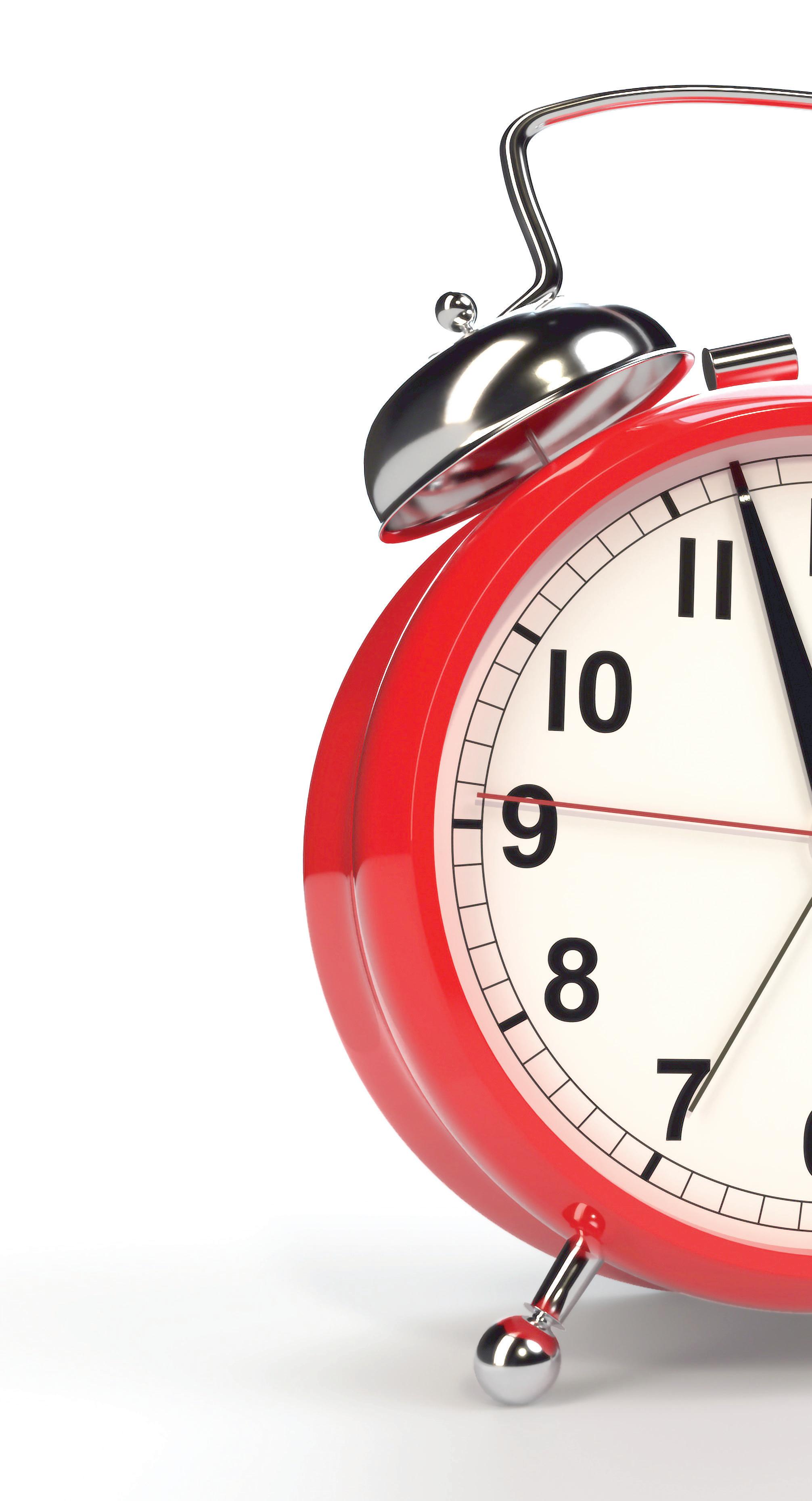
Changing the Clocks
Many countries around the world have experimented with DST at one time or another. Currently, it’s used primarily in countries in North America, Europe (where it is referred to as “summer time”), and Australia. The main reason for the clock change is to provide more hours of sunlight during the summer evenings after people get home from school or work. The longer daytime can provide more time for socializing or engaging in outdoor activities when the weather is nice. DST was previously thought to save energy with a reduced need for artificial lighting in the evenings, but this has been heavily disputed and rejected and the DST practice has been under increasing scrutiny and discussion.
How We Are Affected
If you live in an area that practices DST, you probably know how tiring it can feel to go through the one-hour shift in the spring. Changing the clocks for DST has significant short-term impacts like sleep loss, worse performance at work and school, more traffic accidents, and increased rates of heart attacks, especially right after “springing ahead” from standard time to DST. There are long-term impacts, too, including reduced life expectancy, increased cognitive problems, and overall worse health. Because of the negative health outcomes, sleep and health researchers around the world have published several position statements supporting the abolishment of this practice.
To better understand the impacts of DST, we need to consider the three different clock systems: the environmental clock (or sun clock), the imposed social clock, and our internal biological clock.
28 | Volume 4, Issue 1 | Global Sleep Health Issue
The Environmental Clock
The observable light from sunrise to sunset, or the “natural day,” results from the rotation of the Earth and the east-west path of the sun across the globe. The amount of sunlight in each day changes depending on the position of the sun for each location on the Earth. Generally, there are fewer hours of sunlight in the winter (under 12 hours) compared with the summer (over 12 hours).
The Social Clock
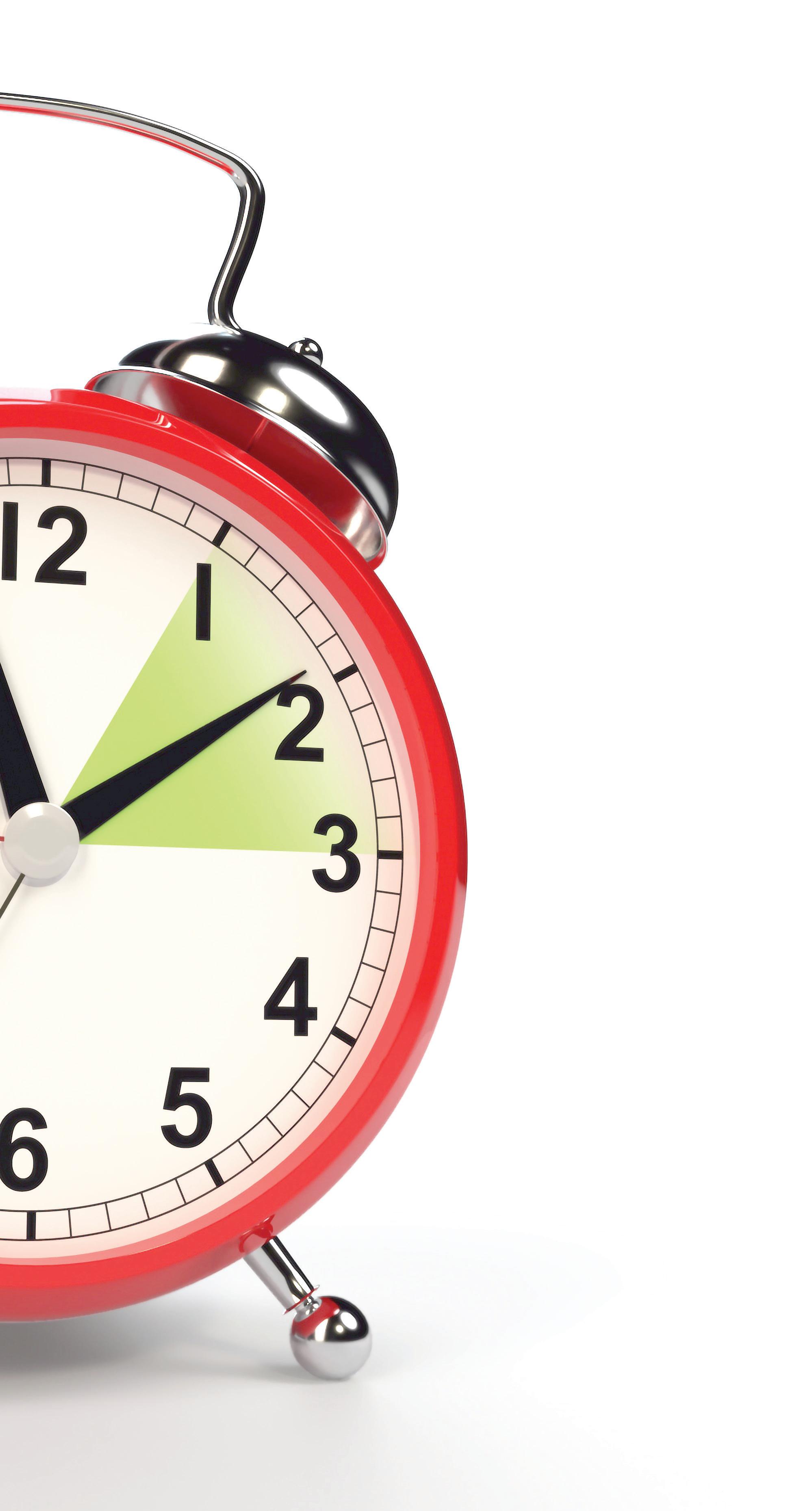
Our societal life is determined by the social clock. When railroads expanded in the 19th century, there was a need to synchronize time across geographical regions for improved communication and coordination. Standard time practices first emerged in Great Britain in 1847 when instating Greenwich mean time (GMT; the mean solar time at 0° longitude).
Today, the Earth is largely organized into 24 regions, or time zones. Time zones are one hour apart based on the coordinated universal time (UTC). It’s important to understand that sunlight exposure time is determined by your location within the time zone. The first light exposure in the day is nearly one hour later for people who live on the west side of the time zone compared to those who live on the east side.
To make things more complicated, time zones are not uniformly distributed. Due to political realities, and since countries and municipalities are not organized according to lines of longitude, time zones vary in size and span.
Our Biological Clock
Much of human biology, including sleep, hormones, core body temperature, and blood pressure, is organized according to circadian rhythms. The word “circadian” can be translated from Latin to “about a day” (“circa” means about and “dian” means day). Our innate circadian systems are slightly longer than the 24-hour social clock, but our bodies adjust to it through a process called entrainment. The exposure to bright light in the morning (as close as possible to wake-up time) provides signals to the main biological clock located in the brain (called the suprachiasmatic nucleus) and triggers the release of certain hormones. This input results in the appropriate adjustment of the biological clock to the external time cues, such as the daily dark-light cycle. DST continued on page 30 >
29 | healthiersleepmag.com
DST continued from page 29
Synchronizing the Clocks
Generally, the social clock during standard time aligns with the environmental clock, with noon (12 pm) reflecting the highest position of the sun in the sky. A person waking up at 6:30 am to get to work or school by 8 am would already have light in the morning, which helps synchronize the internal biological clock with the external 24-hour social clock.
DST involves shifting the social clock later, causing a one-hour offset between the environmental clock and the social clock. This means that 12 pm on the social clock during DST reflects 11 am on the environmental clock. Similarly, during DST, the first light of the day is also delayed by one hour compared to a scheduled wake-up time that is usually determined by the social clock. Someone who wakes up at 6:30 am will have the environmental clock of 5:30 am, a time which is generally dark outside. This has marked impacts on the biological clock that requires morning bright light for entrainment and can lead to desynchronization between the biological clock and social clock, which causes further disruptions to circadian rhythms. Research studies have consistently shown that continued desynchronizations between the internal and external clocks have chronic and negative impacts on health and longevity.
DST has been highly debated and continues to be a political topic with countries actively considering different clock practices (e.g., DST, permanent DST, permanent standard time). Political changes across the world and practices of implementing different clocks will provide for additional data on the impact of time manipulation and its health outcomes. .............................................................................................
Dr Ariel Neikrug is an Assistant Clinical Professor and the Director of the Behavioral Sleep Medicine Program at the University of California-Irvine. He has worked in sleep medicine for 15 years with a focus on behavioral sleep medicine, circadian activity rhythms, and actigraphy.
Dr Ivy Chen is an Assistant Project Scientist in the Department of Psychiatry and Human Behavior at the University of CaliforniaIrvine. With a focus on insomnia and behavioral sleep medicine, she has 10 years of experience in the field of sleep.
The BuZZZ about Sleep
Your Latest Buzzword is Orthosomnia
Millions of people use sleep-tracking devices to keep an eye on how much sleep they are getting night after night. But as the popularity of the devices is increasing, a new problem is popping up: orthosomnia.
Orthosomnia is a term used to describe a person’s obsession with trying to get the best possible sleep according to their sleep tracking data. Some people are so concerned with their sleep scores that it’s actually causing them to get worse sleep.
Symptoms of orthosomnia may include anxiety, difficulty sleeping, fatigue, and irritability. Orthosomnia is not an established diagnosis, however, and more research is needed to better understand what is happening.
Because sleep trackers do not produce perfect or reliable data, experts caution against placing too much emphasis on the information. If you find yourself paying more attention to your sleep-tracking device than to how you actually feel after sleeping, it might be time to talk with your doctor or take a break from your sleep tracker.
30 | Volume 4, Issue 1 | Global Sleep Health Issue
World Sleep Academy Students Raise Awareness in Their Communities
By Mike Mutschelknaus, PhD
Over the past 16 years, World Sleep Day has become a global celebration of sleep health, a day that educates the public, inspires sleep professionals, and trends internationally on social media platforms.
Currently, a project is underway in the World Sleep Academy (WSA) to expand the reach of World Sleep Day even further. The WSA is a year-long online training program for sleep professionals with the mission of providing “accessible sleep medicine training around the world.” This is the first truly global sleep training program.
There are 38 WSA students this year from Peru, Venezuela, Brazil, Nigeria, Burkina Faso, Haiti, Georgia, Turkey, and others.
To prepare for the project, WSA students first conducted a thorough overview of sleep medicine in their respective countries and made specific recommendations to improve global sleep health. Recommendations included translating sleep surveys into local languages, increasing collaboration between countries, and setting up focused research projects.
Based on what they have learned, WSA students will organize in-person, online, or social media events to reach out to primary care providers in their parts of the world. The specific focus of this project on primary care providers is intentional. Health workers in many parts of the world need basic sleep education in order to help their patients.
World Sleep Day provides the WSA students a way to leverage a global phenomenon to help their local populations.
Dr. Mike Mutschelknaus is the faculty director for the World Sleep Academy and the program coordinator for the International Sleep Research Training Program (ISRTP). His passion is helping people from different countries collaborate to improve sleep health.
ACCESSIBLE SLEEP MEDICINE TRAINING AROUND THE WORLD
World Sleep Academy is a year-long online education program in sleep medicine intended for health care workers who are not sleep specialists. The purpose of the Academy is to provide accessible, high-quality sleep medicine education, particularly in places currently underserved by sleep medicine.
31 | healthiersleepmag.com
worldsleepsociety.org/wsa
Advancing Sleep Health Worldwide


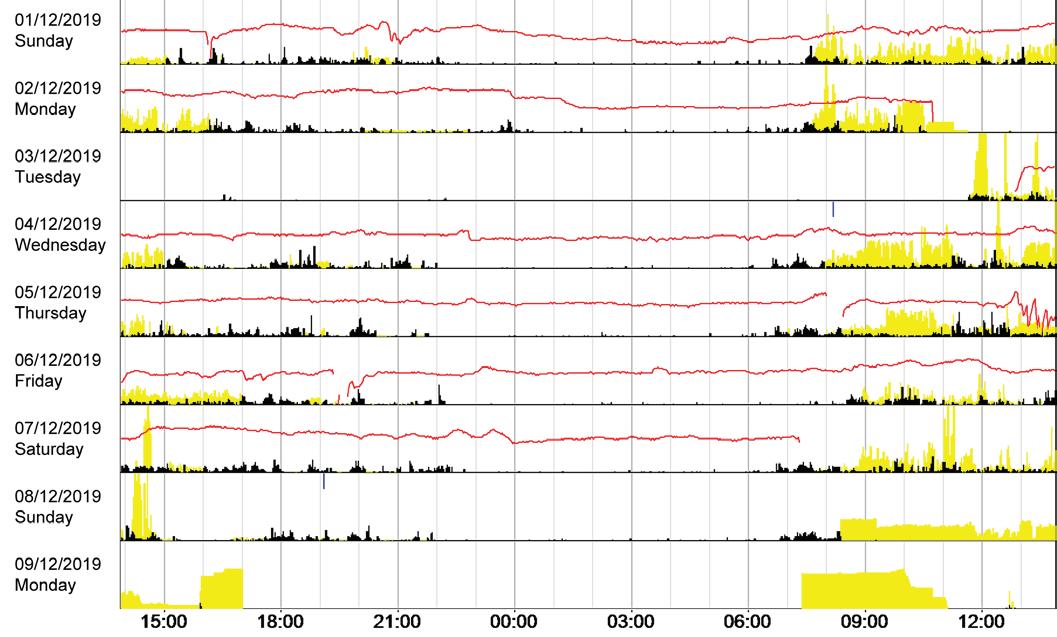
32 | Volume 4, Issue 1 | Global Sleep Health Issue WSO.fullpage.11-20 1 23/11/2020 11:23
Ask the Sleep Experts
As answered by our issue reviewers
Question: I tend to sleep badly if I have a stressful day, but otherwise sleep fine. Is this abnormal?
Dr. Lipford:
It is completely normal for stress during the day to affect your sleep patterns. Stress can make it more difficult to fall asleep and stay asleep. It is important to develop healthy ways to reduce and alleviate stress to prevent it from having a chronic impact on your sleep. Developing a relaxing bedtime routine and avoiding screens prior to bed can help. Relaxation techniques, a warm bath or shower, or gentle stretching prior to bed can all help alleviate stress so you can get the sleep you need.
Dr. Ramagopal:
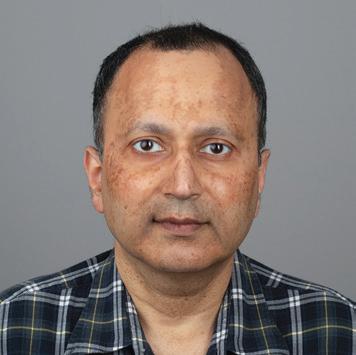
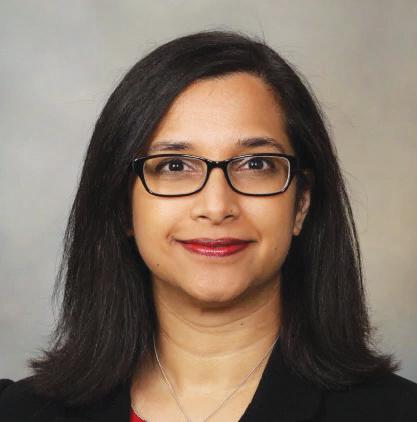
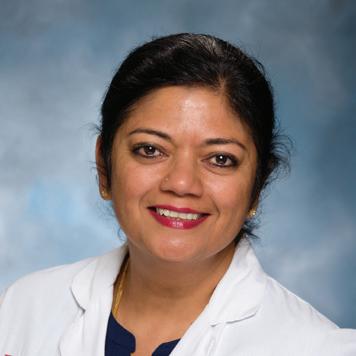
This is not an unusual problem at all. Stress and poor sleep are closely related. Problems with either one can have adverse effects on the physical and mental health of a person. Poor sleep increases the release of cortisol (a stress hormone) and insulin, which have negative effects like elevated blood pressure and weight gain. If you have had a stressful day, avoid caffeine, alcohol, and eating a heavy meal before bedtime; these can make your sleep worse. Try relaxation techniques like breathing exercises, gentle yoga, and listening to calming music to facilitate sleep. If it becomes a chronic problem, seek medical help.
Ask the experts continued on page 34 >

33 | healthiersleepmag.com
Maya Ramagopal, MD
Melissa C. Lipford, MD
Robert J. Thomas, MD
Ask the experts continued from page 33
Dr. Thomas:
Stress impacts sleep, but there are strong inter-individual differences, meaning that for the same degree of stress, different people react differently. This "sleep reactivity" is fairly strongly genetic, as identical twins are more similar than nonidentical twins. A questionnaire called "FIRST" (Ford Insomnia Response to Stress Test) can assess reactivity. Highly reactive individuals may be at higher risk for insomnia and depression.
I regularly hit the snooze button on my alarm many times. Do I have a sleep disorder?
Dr. Thomas:
Maybe, maybe not. Habitual short sleep (less than optimal for the individual) will result in a need to wake up before fully paying off a sleep debt, and the alarm button will suffer. Long sleepers will also likely do so. There probably is not a night owl (people who naturally prefer going to bed late) who has not hit that button many times. This is also likely to happen to people with the long-sleep version of idiopathic hypersomnia, a condition of excessive sleepiness from a not very well understood brain disorder.
Dr. Lipford:
Hitting the snooze button on your alarm multiple times can be an indicator that you may not be getting enough sleep or there could be a problem with the quality of your sleep. If you find yourself regularly hitting the
snooze button, it might be helpful to evaluate your overall sleep patterns and see if there are simple changes to improve the quality and quantity of your sleep. This could include establishing a regular sleep schedule, avoiding excessive caffeine and alcohol, and avoiding screens prior to bed. If you continue to have difficulty getting up in the morning, it may be helpful to speak to your healthcare provider to rule out an underlying sleep disorder.
Dr. Ramagopal:
This could happen due to insufficient sleep, an inconsistent sleep routine, or incurred sleep debt. It could also happen if you are a night owl and your alarm goes off when you are in slow wave sleep or deep sleep, which makes it difficult to wake up. There are ways to counter this problem:
• set several alarms, a few minutes apart
• place your alarm away from the bed, so it is not so easy to hit the snooze button
• use a vibrating alarm clock that delivers a ‘gentle shake’ to help you wake up
If you are getting enough sleep and still find yourself hitting the snooze button a lot, there could be an underlying sleep disorder that needs evaluation.
Is it OK to have pets in bed while sleeping?
Dr. Ramagopal:
There are pros and cons to this question. According to Sleep Foundation research, nearly 35% of children share their bed with a pet. Pets provide security at night and service dogs have been shown to decrease posttraumatic stress disorder (PTSD) symptoms. Pets, especially dogs, have been shown to help with anxiety, especially in children with autism. In adults, pets cause cortisol levels to decrease and oxytocin levels to increase, both of which help to induce sleep.
However, there can be some drawbacks to having your pet sleep in your bed. Pets can trigger allergies and other infections that maybe present on the fur or elsewhere on their body. Pets change position during sleep and sometimes have noisy breathing and snoring, which could further disrupt sleep. Pet beds and crates can be used for proximity to ensure that everyone gets a good night’s sleep.
34 | Volume 4, Issue 1 | Global Sleep Health Issue
Relaxation techniques, a warm bath or shower, or gentle stretching prior to bed can all help alleviate stress so you can get the sleep you need.
Dr. Lipford:
It is a matter of personal preference and what works for you. Some find pets in the bed to be comforting. Others may find the movement and sounds of a pet to disrupt sleep. If you suffer from allergies, having a pet in the bed can also exacerbate symptoms. A quiet and peaceful bedroom environment helps to optimize sleep quality. Ultimately, the decision of whether or not to have a pet in the bedroom should be based on what works well for you and your pets.
I can sleep for a really long time, over 10 hours given the opportunity. Is that abnormal?
Dr. Ramagopal:
You may belong to a small segment of the population (about 2%) who are referred to as “long sleepers”.
While it is not conclusively shown that long sleep is associated with deleterious health effects, some studies have shown a higher risk of cardiovascular problems in this group. It also puts a person at a greater risk for weight gain. While there is no specific treatment for long sleepers, it is always a good idea to practice good sleep hygiene. If you are concerned about sleeping too much, you should consult a doctor, especially if you have symptoms of daytime sleepiness.
Dr. Lipford: Sleeping over 10 hours occasionally if you are sleepdeprived or ill is not necessarily abnormal. However, consistently needing to sleep over 10 hours nightly could be a sign of an underlying sleep disorder. If this is the case, discuss it with your medical provider.

Dr. Thomas:
It may be. Some individuals are capable of long sleep and have no trouble functioning with slightly less, as is the usual demands of life across the working week. These are true long sleepers, but they merge with a condition of idiopathic hypersomnia, where
there is daytime fatigue and sleepiness despite any amount of sleep. A visit to a sleep physician is best if sleep is long AND unrefreshing, especially if there is daytime fatigue and difficulty getting up in the morning.
Have a question for the sleep experts?
35 | healthiersleepmag.com Submit your questions by email to healthiersleep@ worldsleepsociety.org Questions are selected based on space and applicability.
Healthier Sleep Magazine
3270 19th Street NW, Suite 109
Rochester, MN 55901 USA
Have You Heard?
The AHA Life’s Essential
The American Heart Association (AHA) has added sleep to their cardiovascular health checklist! In 2022, AHA’s previous checklist, known as “Life’s Simple 7” was updated to “Life’s Essential 8”.
Cardiovascular disease is the top cause of death worldwide. Since the Simple 7 was published in 2010, research has repeatedly shown that poor sleep increases the risk of cardiovascular disease, depression, obesity, and dementia. The AHA recommends that adults get 7-9 hours of sleep each day.
The addition of sleep to the checklist underscores the importance of quality sleep in overall health. To learn more about the Essential 8 and assess your own heart health, visit www.heart.org
8 Includes Sleep
1. Eat Better
5. Manage Weight
2 . Be More Active
6. Control Cholesterol
3 . Quit Tobacco
7. Manage Blood Sugar
4 . Get Healthy Sleep
8. Manage Blood Pressure


































 Dr. Jade Wu
Dr. Jade Wu










 By Arup Haldar, MBBS, DCH, MD
By Arup Haldar, MBBS, DCH, MD










